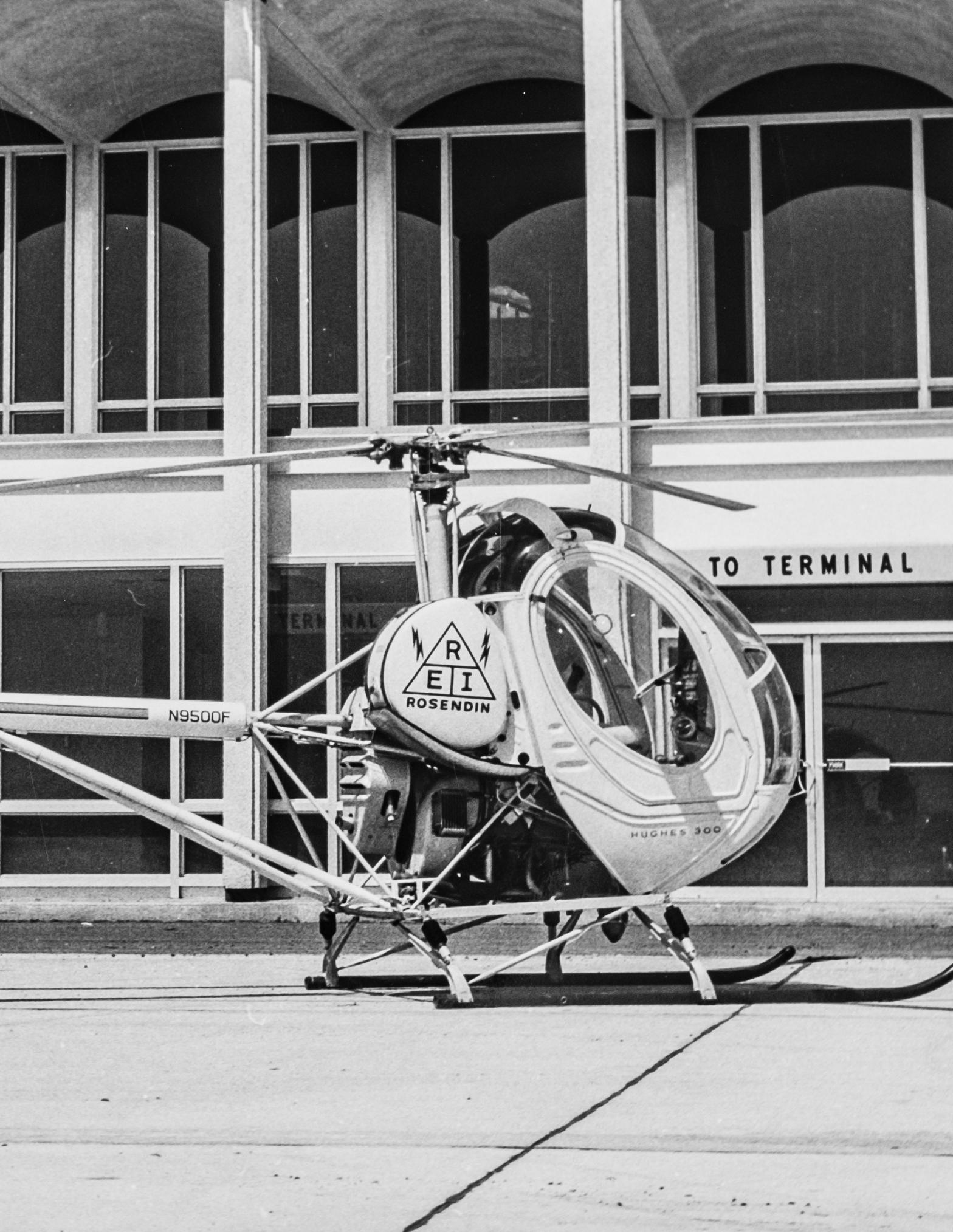THE FEEDER































To achieve our goals, we must provide consistency in key areas: employee experience, customer experience, safety, and quality—a "One Rosendin" experience.
It's a little hard to believe that summer is already here. We've had a demanding first half of the year here at Rosendin, with many changes and challenges; but it is important that we also reflect on our many accomplishments.
At the start of this year, we put a plan in place that required discipline. We know that we are in a industry that is growing at a pace that requires us to make conscious choices about our growth. We knew we wanted to grow at a consistent pace, and we have held to that. We have kept our values front and center and remained focused on our workforce and customers.
As a result, Rosendin continues to thrive, and we have the most robust backlog in the company's history. We continue to see that the areas where we excel and thrive are flush with opportunity. We confirm that our decisions align with our long-term strategy by remaining focused and disciplined.
Strategy is essential to ensure that our choices drive and improve customer and employee experience and safety. Strategy is about making deliberate choices and trade-offs and intentionally choosing a course of action that leads to desired results. We have aligned our key markets with our geographical focus to achieve this. The reality is that skill sets differ across the country. It's not a case of a one-vertical-fits-all-geographic-markets.
We do electrical work well and apply it to several industries. However, if we do a job type well in California, it doesn't mean it will be done as well or better in Virginia. We will not move into a market that doesn't align with our mission, vision, and purpose. And we will never move into an industry where we are not confident we can perform the work safely.
To achieve our goals, we must provide consistency in key areas: employee experience, customer experience, safety, and quality—a "One Rosendin" experience. Essential to the One Rosendin experience is ensuring that our employees have the same level of understanding and investment in our culture.
When a company grows quickly, your most considerable risk is that not all employees will have the same level of investment in the culture. Rosendin is fortunate to have stayed true to our identity AND our core values through several years of tremendous growth. Our safety processes remain some of the best in the industry, but we need to ensure that as we grow, our culture scales with us.
Over the past year, we have teamed up with JMJ, a trusted partner who is a leader in growing and enhancing company safety cultures. This is part of our efforts to continuously improve and make our work environment safer. Challenging ourselves to see where we need to grow and improve is critical to safety. And, as a learning organization, we must be ready to grow with focus and care. Our culture of safety is essential to our successful growth.
I want to continue encouraging everyone to keep the lines of communication open. The speed of innovation and change that our industry is experiencing makes communication more vital than ever. Poor communication has as much impact as good communication. Continue to speak up and reach out. You are an essential part of Rosendin's future.
-Keith
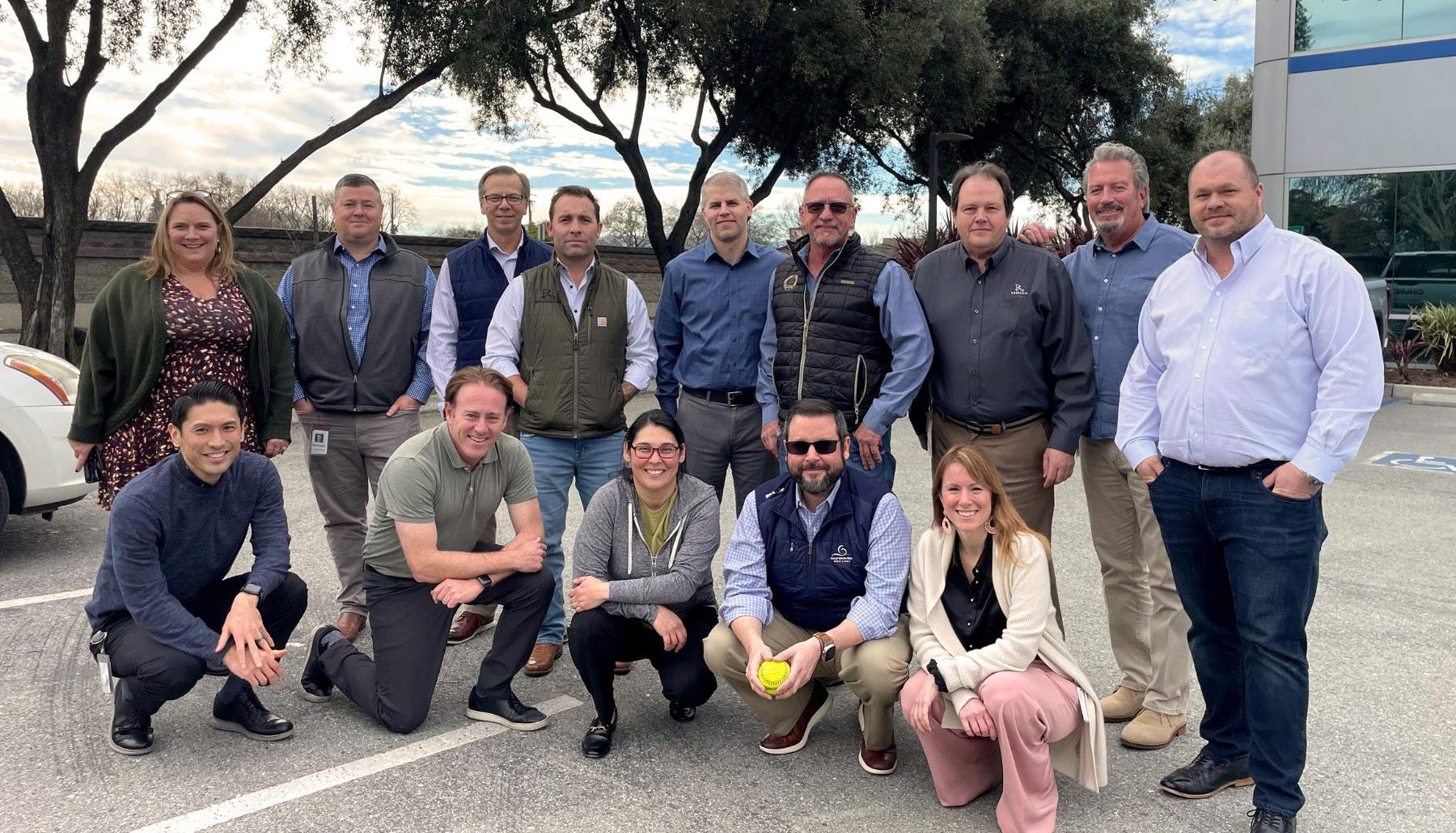
"THE LIGHTHOUSE INSTITUTE TRAINING IS ABOUT CHANGING LIVES AND BUILDING PEOPLE."
David Elkins, Senior VP Field Operations
At a time when effective, inspirational leadership is more critical than ever, Rosendin's Executive and Senior Leadership Teams embarked on a transformative journey through an immersive training program facilitated by the Lighthouse Institute. The training required leaders to be open, transparent, and vulnerable with each other to build lasting trust and unite them as one team.
The Lighthouse Institute training is comprised of 13 rigorous in-person sessions over four months (65 hours) designed to challenge and elevate leaders' relationships and capabilities. Embarking on this took a significant commitment from Rosendin's ELT and senior leadership, but everyone brought 100% of themselves to the process.
As the teams reflected on their journey, the training had a profound impact. It redefined not only their approach to leadership but also their continued reinforcement of Rosendin's strong and collaborative culture.
"We knew we wanted something different than the typical leadership training we've done," said Keith Douglas, CEO. "Hank Brasch, Rosendin's Chief Administrative Officer, had worked with Lighthouse Institute previously and suggested I have a conversation with them. I started to call a few folks who had
The Lighthouse Institute's leadership training program is now a foundation and a code of cooperation for Rosendin's senior leadership teams. By overcoming trust issues, embracing vulnerability, and leveraging each other's collective strengths, the SLT and ELT are united as a team. The transformation journey is always ongoing, but the principles each leader learned, and the foundations laid during this training have set the leaders toward sustained collaboration and growth.
To continue their development, each leader applies what they learned to their teams, with the ultimate goal of extending the training across the company. Having more Rosendin employees go through the process will lead to a more cohesive, productive, and successful organization.
Why
At the outset, the leadership team faced some challenges. Much of that stemmed from a recent CEO and CFO transition and new team members who were unfamiliar with each other. Rosendin's leadership needed opportunities to get to know each other on a deeper level, build relationships, learn to respect each other's ideas and points of view, and figure out how to bond and work as one collaborative team. The Lighthouse Institute's training program was meticulously crafted to address these needs.
Building Trust and Understanding: The initial training phase focuses on breaking down barriers and fostering trust among team members. Through guided exercises and candid discussions, leaders shared their personal stories, revealing vulnerabilities and experiences that had
worked with Lighthouse, and the single refrain I heard was that while the training was 'hard to describe, it's different in all the right ways.' I wanted to ensure that if I was championing this effort with our leadership team, I believed in their philosophy and approach."
The Lighthouse Institute program is not a traditional leadership or development program. Lighthouse's philosophy is about creating and developing great human beings. Certain things can be trained or taught, but the program is about learning how to get to know people at a much deeper level. The training focuses on the person—the human element.
"Lighthouse Institute training is about changing lives and building people," said David Elkins, Senior Vice President of Field Operations. "It has made me a better person."
Keith added, "We needed to come together as a leadership team. We had new individuals join the ELT and leaders in all different geographies. There was a need for everyone to connect at a more intentional level. We all know each other and work together, but there is a difference between working together and leading a $3B organization on a path to $5B. We wanted to focus on ourselves as it was important that we get it right be before we get it out, prior to rolling this out to rest of the business"
"When we started this journey in August 2023, we were a group of highly skilled, highly competent individuals fully invested in Rosendin," said Hank Brasch, Chief Administrative Officer. "The main purpose of this program was to build greater trust and connectedness. Today, we are a team with all that trust and connectedness, but now we're also invested in each other."
shaped their professional and personal lives. This process is instrumental in humanizing each person and creating a foundation of empathy and mutual respect.
"It's okay if we fail sometimes along the way," added Keith. "We have this very high standard for ourselves, and we strive for that, but it's not reasonable for us to expect that of every initiative, decision, and program we roll out. We have to stay curious and learn from things that don't go well, and we need to be able to accept that for ourselves and others."
Vulnerability as Strength: Embracing vulnerability is a cornerstone of leadership development. By acknowledging imperfections and seeking support from one another, leaders learn that true strength lies in collective resilience. This shift in mindset is crucial in transforming a group of individuals

who work together into a unified, highly functioning-team.
"I think there is a misconception that we should never be vulnerable in this industry –that we must wrap ourselves in armor and keep plowing ahead," said Axelle Girardot, Chief Strategy Officer. "By the end of the training, most of that armor was off, and we could have conversations that we hadn't been able to before, for example, things that may not be going well. Now, we were genuinely asking for feedback, not taking things personally, and tapping into the power of the team to fix those things. That takes a level of vulnerability."
Enhanced Collaboration: Upon completion of the program, leaders collaborate more effectively with trust as a foundation. Problems are approached with a unified strategy, leveraging each other's strengths to achieve common goals and success.
"There is a deeper level of trust. Because of it, we are closer as a unit," remarked Angie Hart, Executive Vice President. "We give each other more grace and do things for the team's greater good."
Strategic Alignment: A significant outcome of the training is leadership's alignment with the company's strategic vision. Leaders are better equipped to translate the company's vision into actionable plans within the organization and departments, ensuring that all efforts are synchronized toward achieving shared goals.
"Our relationships were transactional when we started this program," said Justin Tinoco, Executive Vice President.
"We have now built trusting relationships and learned how to understand each other and communicate better. This new level of trust and direct communication has bonded us as a leadership team and will ultimately create better alignment for the company."
The benefits of the Lighthouse Institute's leadership program will extend far beyond ELT and SLT. Recognizing the profound impact the training has had on them, they are committed to rolling it out to other leaders and teams across the company.
Each Rosendin ELT member is now a champion of the training principles within their teams. They are implementing the techniques and insights gained to cultivate trust, enhance communication, and foster a culture of vulnerability and support. This ripple effect ensures that the positive changes are not confined to senior leadership but permeate the company.
"We are in the process of extending this training to other leaders in the company, starting with the regional leaders and further rolling out training from there," said Stephanie Roldan, Vice President of People. "By doing so, we aim to create a consistent leadership approach across the company, ensuring that every leader has the skills and collaborative mindset necessary to navigate the complexities of today's business environment. If we can strive to get 1% better as an organization, that's a solid start."
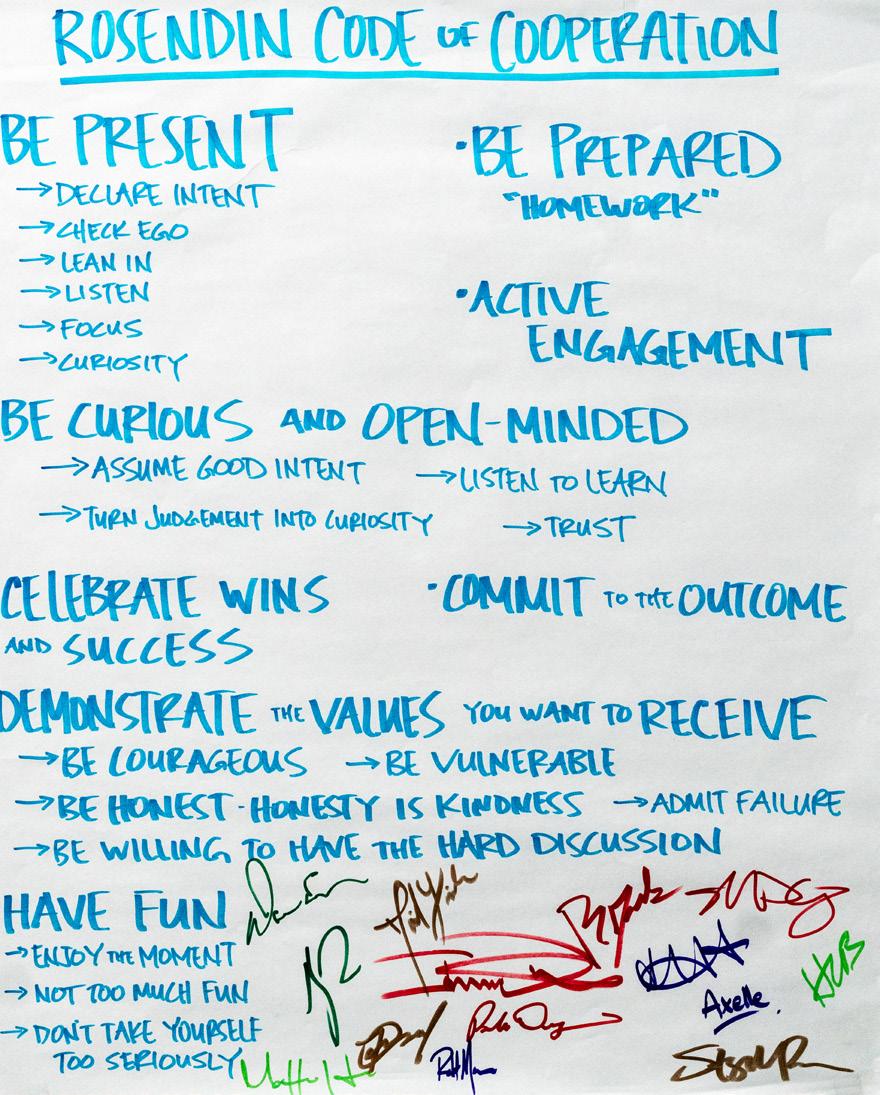
When the leadership team wrapped up the Lighthouse Institute training, each wondered how to sustain what they learned, as this was an experience they never had before. Previously, ELT and SLT members had gone through leadership development and team building, but this training is something they couldn't wait to bring to their organizations and teams.
"Lighthouse has done a great job of bringing our core values to the front of the leadership team and reminding us that our people and culture separate us from the industry," stated Paolo Degrassi, President. "We are excited to be bringing Lighthouse training to the rest of the leaders in our organizations to help ensure our culture remains in front of defining who we are and that by working as a team, we can accomplish great things."
Over the next 12 to 18 months, the plan is to move the Lighthouse Institute's training through each region in the organization. Regional leaders will receive training like the ELT and SLT teams to understand the experience, create consistency, and onboard their teams to the leadership culture.
"This is a new muscle that we need to learn to use. It's like going to the gym for three weeks; we think we are in great shape, but that doesn't last unless we commit to doing it all the time," mentions Keith. "We will have to use these muscles repeatedly with all leadership throughout the organization."

HEAT ILLNESS SYMPTOMS
HEAT CRAMPS
Muscle spasms can result from the loss of a large amount of salt and water. Cramping can occur in the abdomen, arms, and calves. It can be caused by a fluid or electrolyte imbalance.
HEAT EXHAUSTION
The body’s response to loss of water and salt from heavy sweating. Signs include headache, nausea, dizziness, weakness, irritability, thirst, and heavy sweating.
HEAT STROKE
The most serious form of heat-related illness. Sweating stops and the body can no longer rid itself of excess heat. Signs include confusion, loss of consciousness, and seizures.
HEAT ILLNESS RESPONSE: REQUIRED AID/ACTION
Have the victim rest in a cool place. Give them cool water to drink. Lightly stretch or massage the affected area. If they do not go away within 10 minutes, seek further medical assistance.
START FIRST AID Cool the victim. Loosen tight clothing and remove excess layers. Place ice packs in the armpits and groin area. Fan the victim. Give them water and replenish electrolytes.
CALL 911 IMMEDIATELY!
Start first aid. Cool the victim. Loosen tight clothing and remove excess layers. Place ice packs in the armpits and groin area. Fan the victim. Give them water and replenish electrolytes.


Rosendin's most important asset is its people, and our top priority is for everyone to return home safe each night, free from injury. By the end of September 2024, Rosendin will transition to safety helmets to ensure the highest level of protection for our people. This also drives a One Rosendin experience with one color for the new helmets to make our workers more recognizable in the field and bring teams together by showing up the same across the country in all our regions and customer sites.
The evolution to the helmet is based on years of case studies involving traumatic head injuries. Of all construction-related fatalities, head injuries account for 25%. The construction industry as a whole is transitioning to helmets as part of the required PPE.
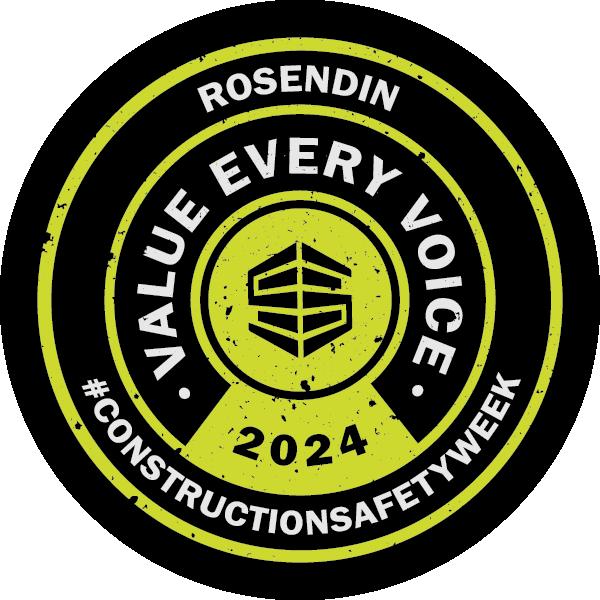
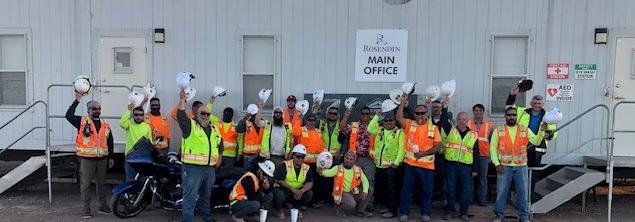
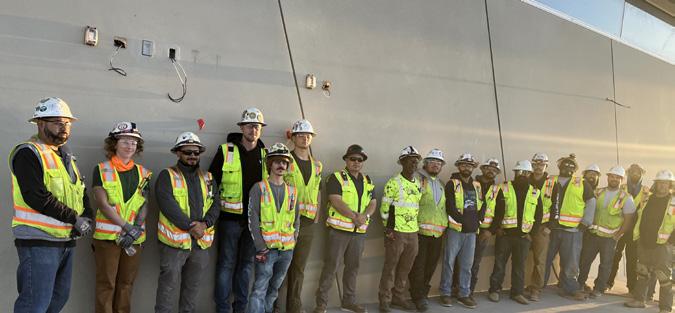
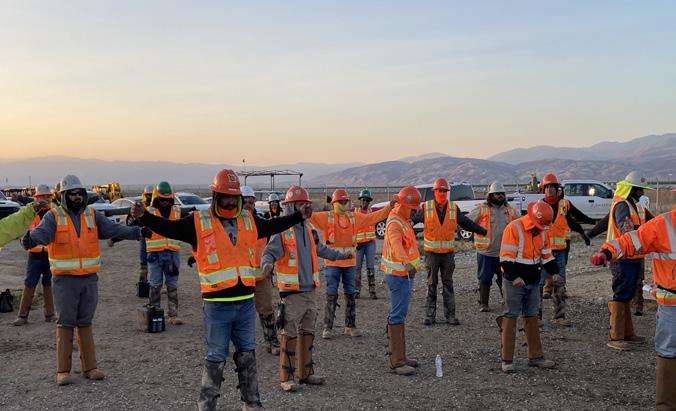
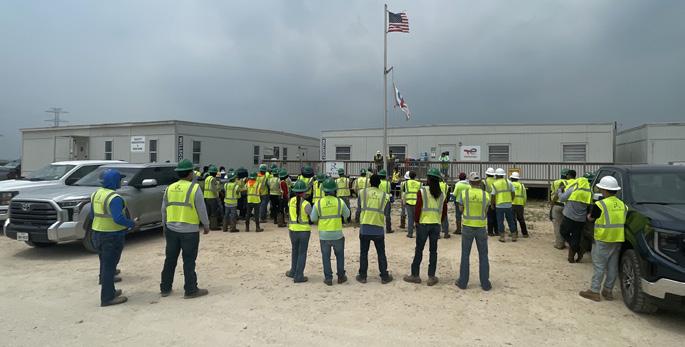
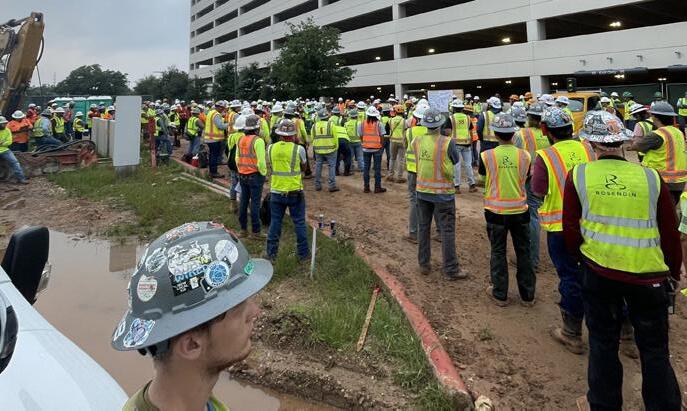


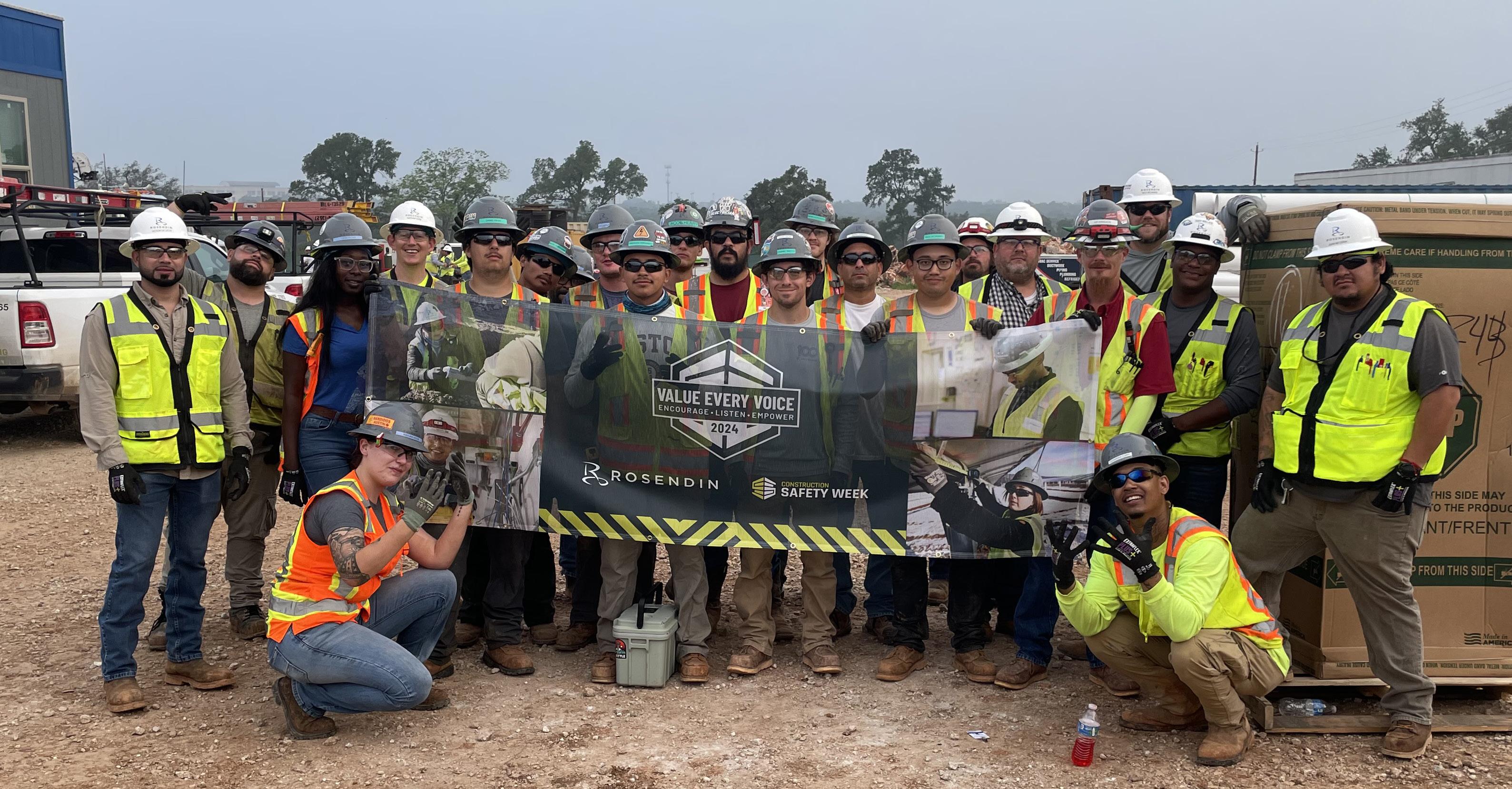
The success of our work depends on providing our employees and project partners with a safe environment. Everyone on the project is responsible for their safety and the entire team’s safety. We encourage everyone to choose safety and create an environment that supports open communication, ownership, and teamwork.
At Rosendin, every employee is empowered to help maintain a safe work environment for every person on our job sites and at our offices, including coworkers, general contractors, clients, and trade partners. Our employees are authorized to shut down unsafe work practices without fear of reprimand. This includes hazing, harassment, bullying, and any act or practice that poses a risk. We encourage you to ask questions when something doesn’t seem quite right. Look out for each other. Working safely is a company value; we want everyone to be safe.
Click here to see Rosendin's Construction Safety Week Toolbox Talks.
Staying connected and committed is crucial for us to show up fully and support each other. We must prioritize feeling supported, which will enable us to make safer choices and deliver exceptional work. This is how we build safer individuals and teams, ultimately creating safer job sites.

Working together, we can build a supportive culture where everyone’s voice matters. By encouraging open communication, we will create an environment where people feel safe to speak up, we will learn more about what is happening on the job, and employees will bring their complete selves to work without fear.
When there is trust, respect, and communication, we are all empowered to own and act on safety. Working together creates more opportunities to improve the safety culture on a project, strengthen our connections, and break the patterns that lead to bad decisions. Speak up and use your own strong voice to help everyone make safe choices.
Whether it’s the first construction site you’ve been on or your 50th, you’ve likely heard someone say, “We’re all responsible for safety.” If we all agree that each of us is responsible for our safety and those around us, isn’t it important to encourage and welcome new ideas that contribute to safe outcomes? If everyone is accountable for safety, we need to be willing to listen and respond to everyone’s concerns and suggestions.
The dialogue created through everyone’s contribution to the discussion brings forward all the expertise on the crew. It leads to better hazard identification and safety improvements in the work process.
Embracing every voice creates an environment where every team member feels valued and heard. When people feel their voice is heard, employee morale and engagement improve, teams are more productive, and various perspectives are shared. We encourage everyone to report unsafe conditions and hazards to their supervisor to eliminate those hazards and prevent incidents and injuries from occurring at our project sites and facilities. Not having the training or knowledge to complete a task poses as much risk as a physical hazard. If the scope of work is unclear, gather more information or ask a supervisor or coworker to demonstrate how to complete a task.
An effective safety culture is important for our success at Rosendin. For us to succeed, everyone at Rosendin must create a safe environment for all of our project sites, warehouses, and facilities. The goal is to send everyone home each day safely without getting injured.
As a crew member, you also need to set the tone for safe practices. There should be no difference in the commitment to safety regardless of levels within the company. No one should be injured because we did not take the time to plan our work and work our plan.
We all have a voice in safety, and nothing we do is worth risking our lives or the lives of our fellow team members. Empowering our craft workers to raise their concerns and act goes beyond simply discussing it at daily toolbox meetings. Everyone has a voice to make safe choices.
We want to thank each of you for your participation in Safety Week 2024! Together, we are working to make our industry safer, which takes a commitment from us all. We know it’s a collaborative effort that we all must participate in. Because of your dedication, our industry is better today than ever before. Let’s keep our focus on continual improvement and build a construction industry that is better and safer for all.
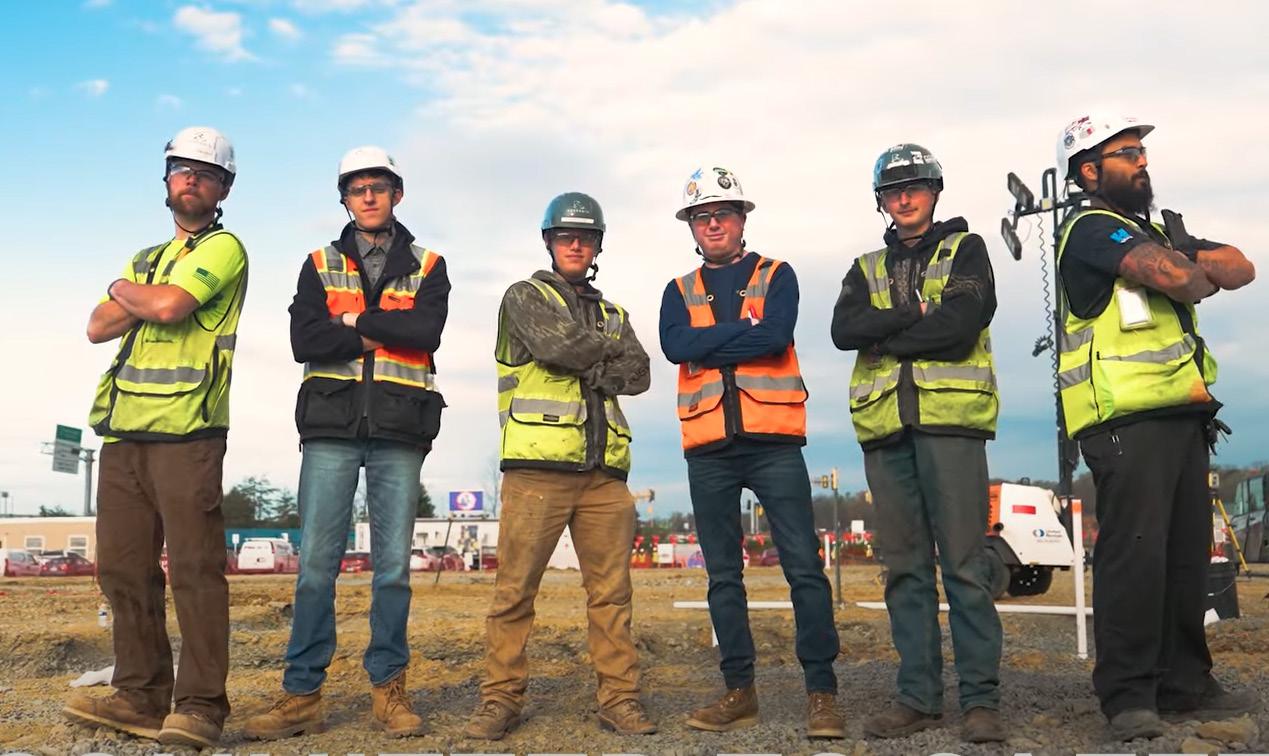
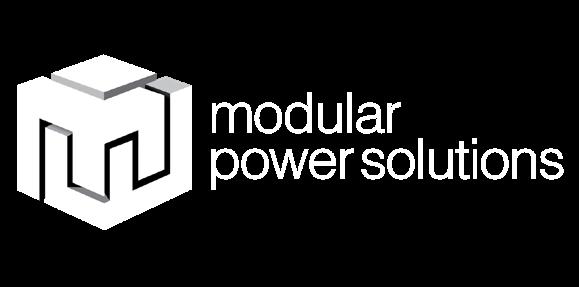
By Joe Bebon, EHS Daily Advisor (reprint)


Some people love their jobs, many hate them. Orrin Tyrel Mitchell is one of the former. He is grateful for the opportunities afforded him and lessons learned at his workplace, and he is filled with pride and passion for safety.
Mitchell serves as the director of safety at Texas-based Modular Power Solutions (MPS). As its name suggests, MPS provides large-scale modular power systems to help keep businesses online. The company was founded in 2011 as a wholly owned subsidiary of Rosendin Holdings Inc., one of the largest privately owned electrical contractors in the United States.
MPS operates facilities in Sherman and Lewisville, Texas, with a new site underway in McKinney. Mitchell joined MPS/Rosendin eight years ago before moving his way up the company ladder. In his current role, he manages the overall safety program and compliance for MPS and its nearly 300 employees. To learn more about Mitchell and his take on industry issues, please read the Faces of EHS interview below:
Q: How did you get your start in the field?
When MPS started, we had very few employees and did not have a safety representative in place. I was working in the field setting gear, pulling wire, and doing terminations. As we began to grow, leadership wanted to build a dedicated safety program and culture. Someone noticed my passion, hard work, and experience and wanted to cultivate and grow that potential, so they asked me to oversee the safety aspect full time. That opportunity gave me the chance to grow into the professional I am today.
Q: Who has been your biggest influence in the industry?
That would have to be the safety leadership within Rosendin, such as Marty Rouse, Shayne Stevens, Josh Johnson, Anthony Ordonez, Ben Anderson, and now Scott Risch. These individuals have played an integral part in building me into the professional I am today. I can honestly say that I have never had the support anywhere else like I do here. These people have listened to me and my team and are just a phone call away to lend a helping hand, impart knowledge, and answer any questions. I have stated this in the past and still to this day, but the support they give and knowledge they bring is nothing short of amazing.
"
My favorite thing is celebrating achievements with employees and helping them understand they are the most vital part of our success."
Q: What’s your best mistake, and what did you learn from it?
Honestly, I would frame it as my biggest challenge. If you were to ask anyone, they would tell you that I am extremely passionate about what I do here. Sometimes that passion can come out strong and I need to channel it into being more constructive and positive. I just want others to see the necessity of doing things the right way, the safe way, and how to benefit from it.
Q: What are some of the biggest EHS issues at your organization?
It’s our growth. MPS is growing at an expedited rate and with that brings issues in workforce and ensuring that, up front, we are ready for it. Not only in a production sense, but also ensuring that we are investing in the culture we have built at our previous locations and spreading it to new ones. That requires proper training, efficient supervision, safety knowledge, and ensuring that everyone has self-accountability as individuals and is still looking out for one another.
Q: What’s your favorite and least favorite part about working in the industry?
Would you change anything?
A positive safety culture must be genuine. People must believe and trust in what you are saying. From top to bottom, you must send a good message that relates to what is being asked of them and you must always lead by example, while encouraging open and honest conversation and receiving feedback that is vital to everyone’s success.
We believe safety is a value, and that requires leadership to be engaged with employees and be the example. They must send the same positive message to everyone. They must also be willing to make decisions that reflect what is in the best interest of everyone’s safety and health.
Q: What safety concerns or issues do you think need more prioritization in EHS programs?
I would say due to the accelerated growth not only in our company but in our industry itself, there is a need
for an increased workforce, which tends to lead to more inexperienced workers. It is paramount that we invest in onboarding processes, training, and mentorship more than ever to ensure we are doing our best to impart the skills and knowledge to ensure not only our employees’ safety and health, but also their success.
Q: How will new safety technologies influence the work being done by EHS professionals?
We are right in the middle of the birth of a new era for safety recording and personnel protection. For example, PPE that can read vitals and give us advanced notice of health issues and the ability to act quickly. The continued innovation of AI (artificial intelligence) and ML (machine learning) will allow us to gather large forms of data and analyze it in real time to identify trends and patterns. With these readings, safety professionals can be proactive to prevent accidents before they occur.
Q: What are you most proud of?
I am so proud to see the growth in the safety program and culture from what it was when I first took this position, but also the opportunity to mold it into what it is today. Rosendin and MPS gave me the knowledge and challenged me to build this. I couldn’t be more grateful.
Q: Do you have any advice for people entering the EHS profession?
Be confident and passionate about what we do. Do not be afraid to ask questions, and if you do not have the answer, be willing to do whatever it takes to get the right answer. Someone’s life may depend on it. That may sound extreme, but we must be influenced by what is best for the safety and health of our employees, and that must be paramount.
Q: Anything else you’d like to add?
I would like to reiterate that I am truly blessed to be given this opportunity to work for a company that is willing to provide a great deal of knowledge and support. I would also like to ensure that everyone who works for Rosendin/MPS knows, you are the reason for our success and are the backbone to what we achieve.
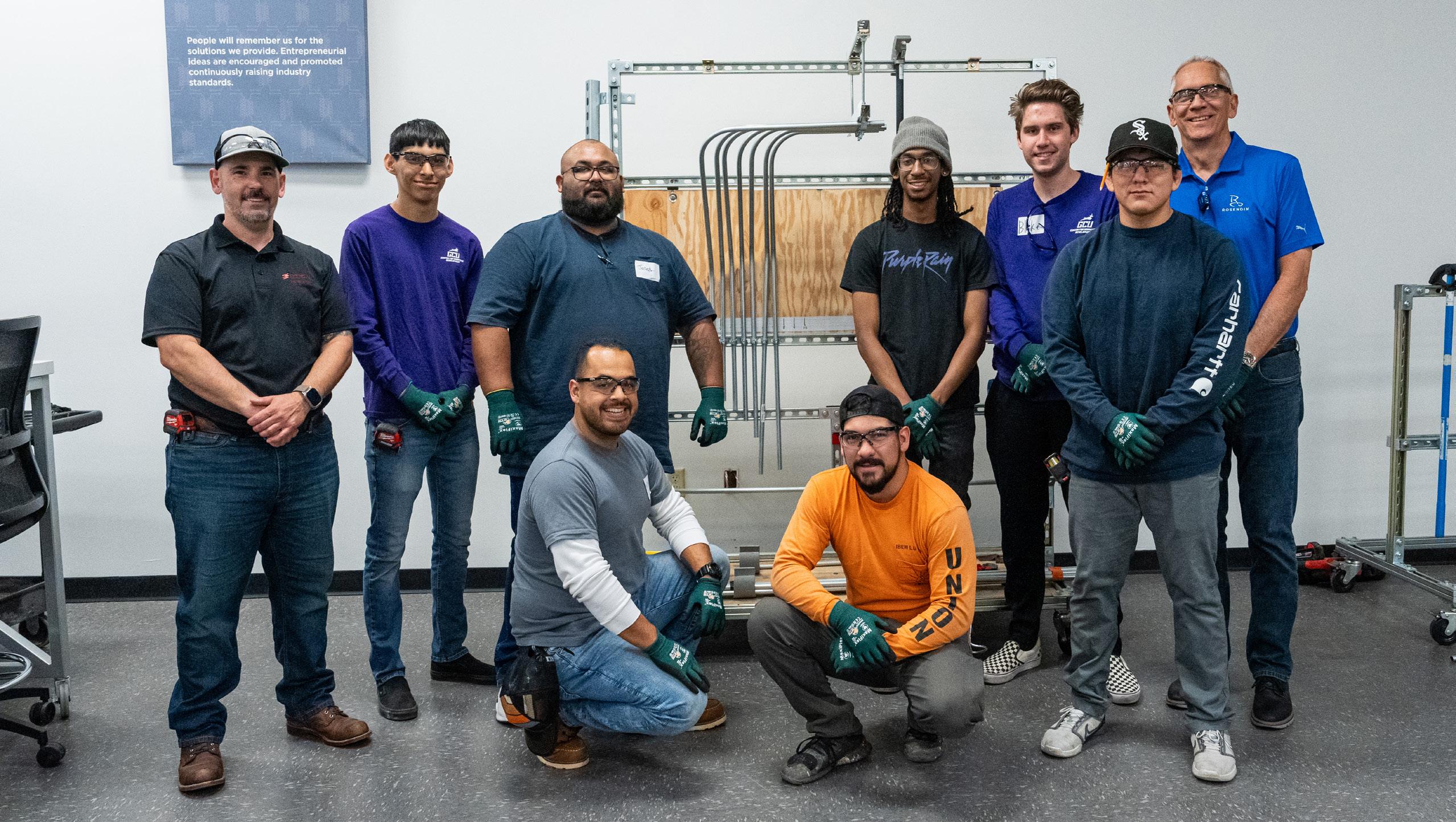
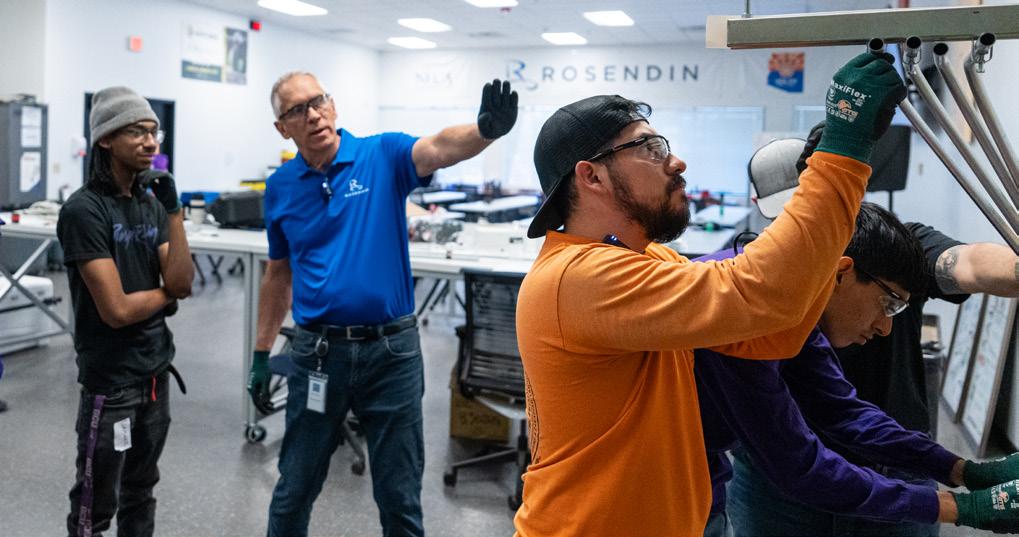
Approximately 41 percent of the construction workforce will retire by 2031, with these individuals taking their unique skills and experience with them. Retaining this institutional knowledge is critical to keeping operations running smoothly and lessening the gap. We could sit back and complain about not having the right workers or enough workers, but that's not in my nature. We need to do something about it.
Since taking on the role of CEO Emeritus in January, I've taken the time to focus on my passion for the industry and building the next generation of craft workers. The construction industry has been struggling for years with a talent shortage, and the high number of individuals retiring is only aiding the industry's impact.
In my pursuit of helping develop the next generation of craft workers and bringing more talent and growth to the industry, I've been partnering and working with Grand Canyon University, the Arizona State Apprenticeship Board, and the Arizona Economic and Education Council.
For the last two years, Rosendin has partnered with Grand Canyon University (GCU) in Arizona. Together, we created a working pre-apprenticeship program that allows men and women to prepare for an electrical apprenticeship with the IBEW and receive college credits for their coursework. After one school semester, students can apply for acceptance into an accredited IBEW apprenticeship. I initially pitched the pre-apprenticeship program to GCU due to the growing demand for construction electricians and the few viable options for filling that demand.
Traditionally, high school counselors are recognized for sending students to college, not apprenticeships, which is what I consider the "root cause" of our industry's labor challenges. Education is important, but a 4-year college degree is not for everyone. Rather than trying to change how our education system works, we found a way to send prospective apprentices to college before starting their careers in construction. This approach has proven to be very successful and rewarding to everyone involved. We are entering our third year with the pre-apprenticeship program in Arizona, and I'm excited to say in September of this year, GCU will open its doors in Austin, TX, to 40 pre-apprenticeship students.
Regardless of old misconceptions, tradesmanship and being an electrician are good, stable professions. Exposing men and women to careers in the construction industry at a young age is vital. Programs like TRF Camp Build, a free week-long construction camp for middle schoolers, STEM programs, and the opportunity to learn the trade in an accredited college pre-apprenticeship that preps individuals to enter the IBEW apprenticeship program are powerful tools.
Connecting with Grand Canyon University was a game changer for the industry, and this partnership between higher education and business will be a model for the future. Together, we are changing the future of the construction industry.
Rosendin is doing things our competitors would have never thought of doing, and the results are real. Over 250 young men and women have completed the pre-apprenticeship through GCU in the past two years and are working in the industry today. Because Rosendin trusted in my vision, is innovative, and focuses on the future and the company's core values, we are getting registered apprentices, which confirms our commitment to our people, jobs, and industry.
In addition to GCU, I was appointed to the Arizona State Apprenticeship Board in early 2024. It's fascinating to learn
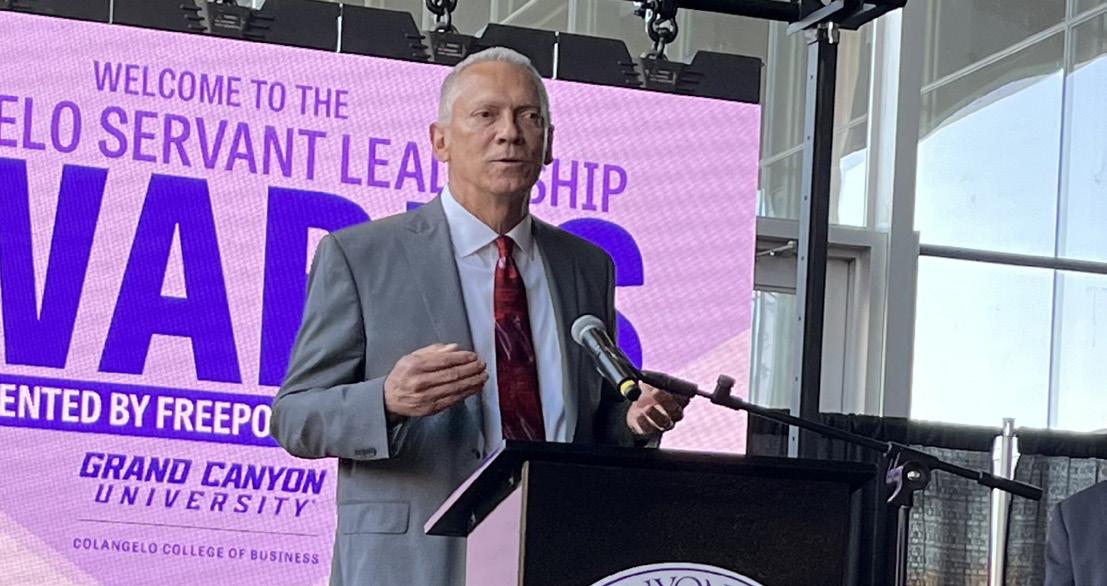
how apprenticeships work with the Department of Labor, the number of apprentices in the state, and the different programs available. Through this opportunity, I've learned a lot more about apprenticeships.
Similarly, I was appointed to the Arizona Economic and Education Council, which is driven by the Arizona Department of Education and comprised of educators and business people. They want to duplicate the model we created with GCU and expand it around the state.
I'm often asked what advice I would give someone just starting a career in the trades. I started my career over 40 years ago as an apprentice with the IBEW. I worked my way through the ranks as an electrician, to leading field teams, division manager, becoming a vice president, and then to CEO, with other titles in between. My response is to say "YES" to every opportunity! Say "YES" to every change. Say "YES" to everything you first thought you would say "no" to.
Take the opportunities that are presented to you because they are going to change you. They will mold you and help you become a better craft worker, whether an electrician, a welder, or something else. If you take an opportunity or promotion to move into an office role, you'll bring your field experience with you, which is experience that most will not have and no one can ever take from you.
Understand that building and working with your hands is so honorable. As a kid, you may have liked to take things apart and put them back together. Who knew that was the beginning of a long, rewarding career and a possible future CEO? I don't think anyone looked at 18-year-old me and felt I could ever be CEO of a multi-billion-dollar company. This industry is challenging. It takes determination and drive, but you can do whatever you put your mind to.
I often discuss servant leadership, which starts with understanding where you came from, being empathic, and having done the work you're asking others to do. Servant leadership is also about showing appreciation for people. Appreciating the work that others do and acknowledging how hard they work. Help others who are not as fortunate as you. Don't ever ask someone to do something you wouldn't do yourself. Make people feel that their work is very special and that you're there to serve them. That's what the construction industry is all about—helping others and growing the next generation.
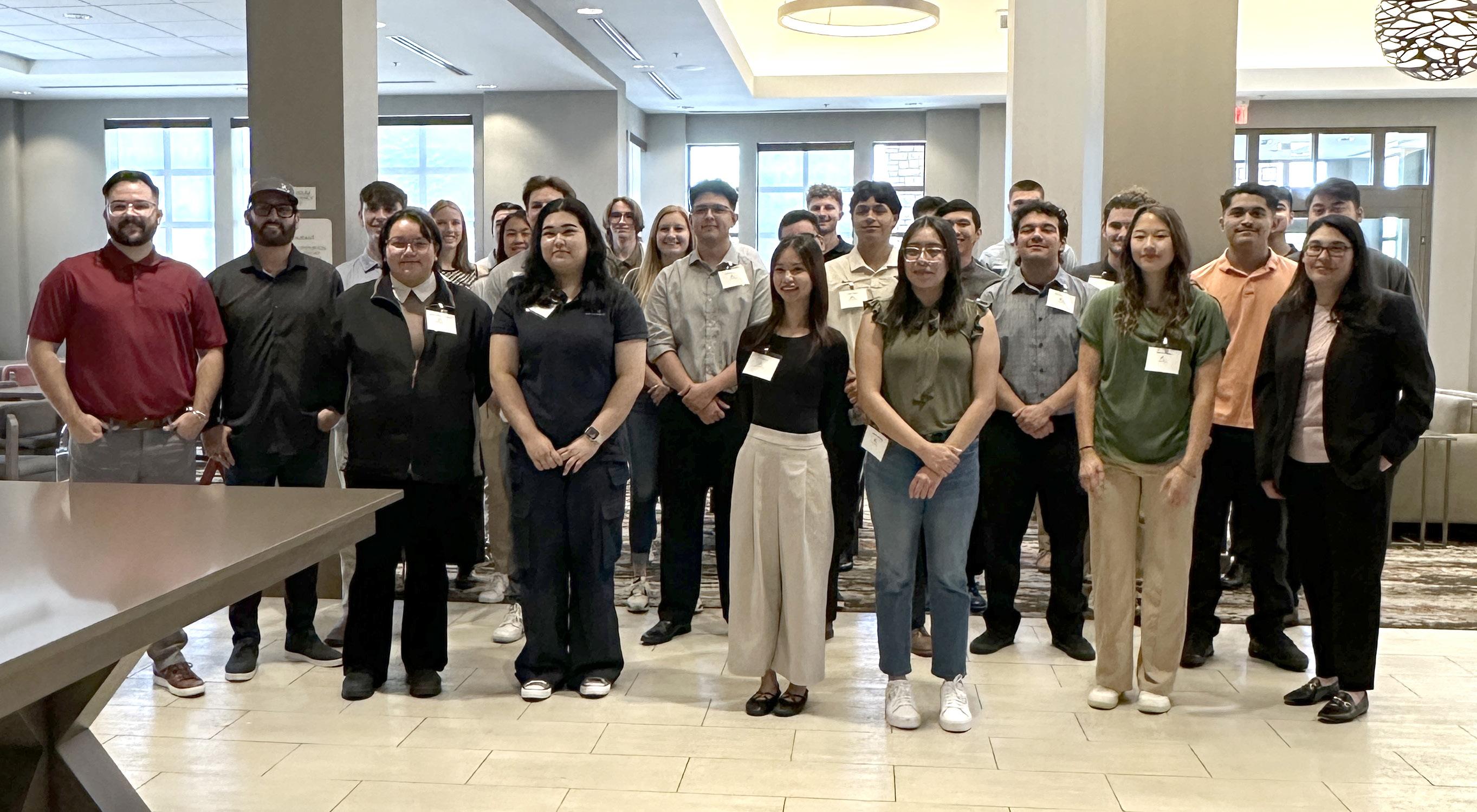
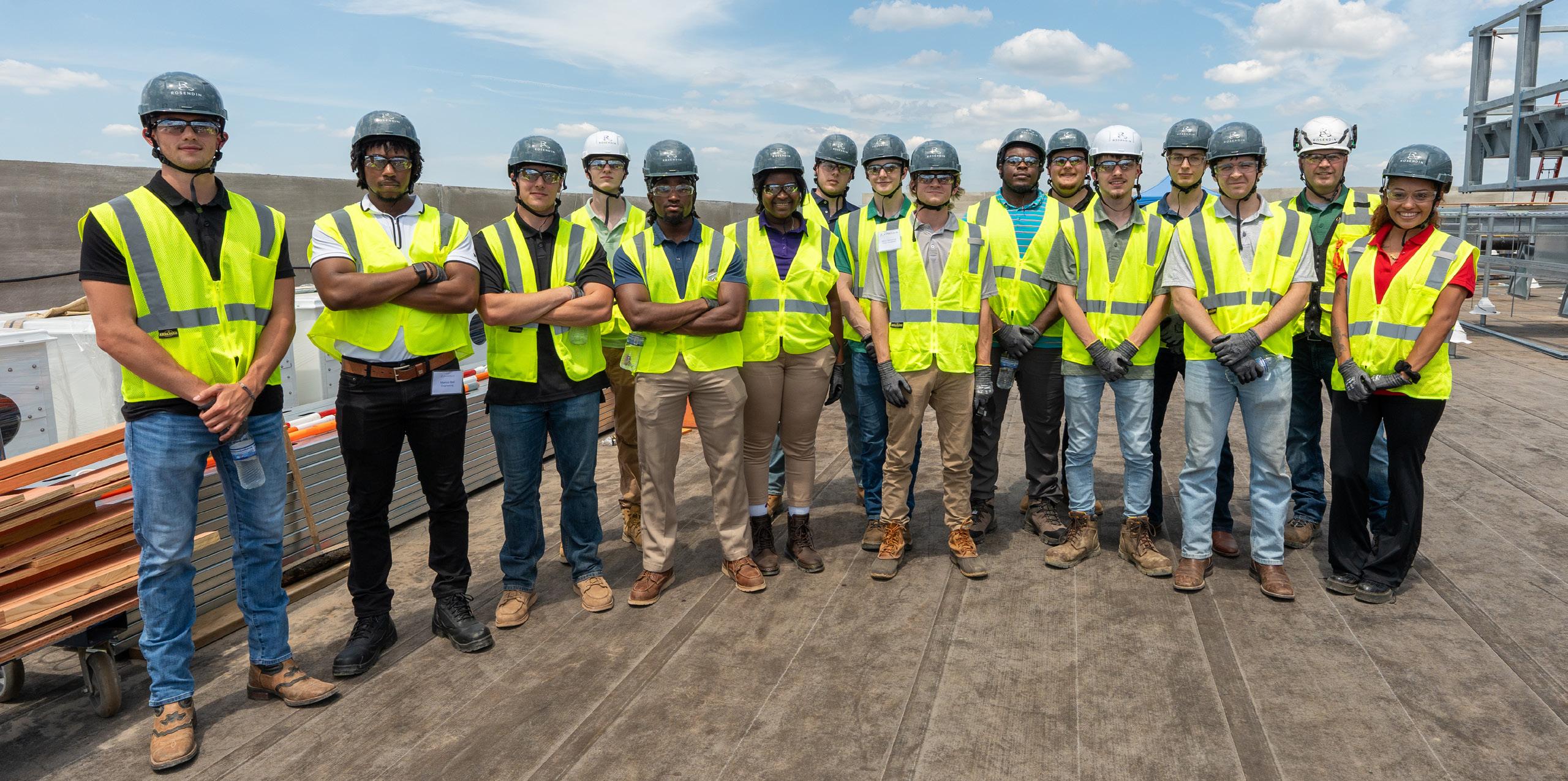
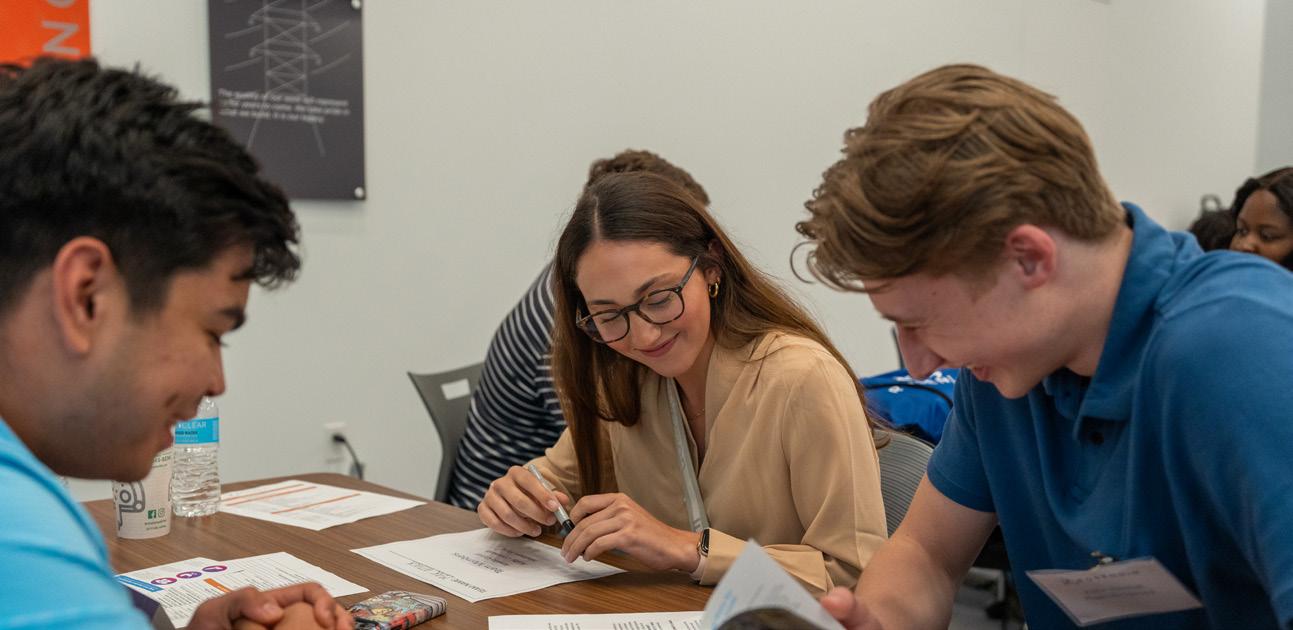
Each summer, Rosendin welcomes a fantastic group of interns and becomes part of their career journeys. The internship program includes first-year interns, who come together for intern orientation, and second and thirdyear interns, who are welcomed back and rejoined with their Rosendin teams.
We are proud of the unique intern program Rosendin has developed to provide meaningful hands-on work experiences, help students develop their skills, and prepare them for the post-college workforce. This year's intern class joins us in many departments across our organization, including Engineering, Project Management, Safety, and more!
For 2024, we have 59 interns joining us across our offices in seven states. Our interns come from colleges such as California Polytechnic State University, Penn State, Virginia Tech, Texas A&M University, and several other esteemed universities.
Since the program started in 2015, 35% of interns have received multi-year summer internships, and 10% of our interns have transitioned to fulltime employees after graduation. Seeing our interns challenge themselves and grow in their professional careers is always exciting, and we are grateful that they chose to work at Rosendin.
Congratulations to our 2024 summer intern class! We hope you take this opportunity to grow, learn, and build your future.
59
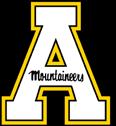
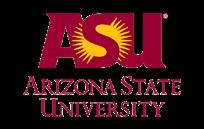


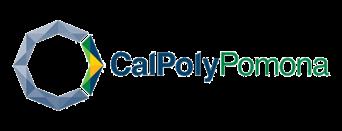
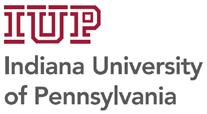

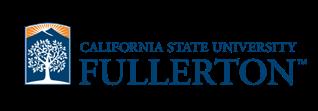




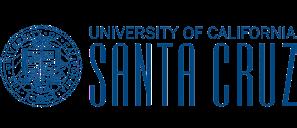
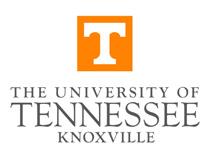

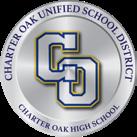
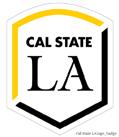




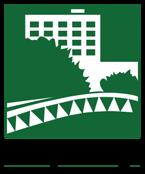
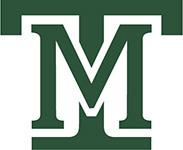
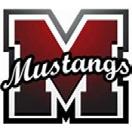
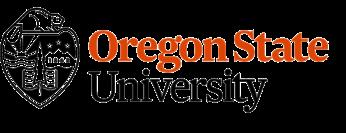
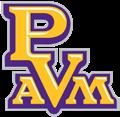
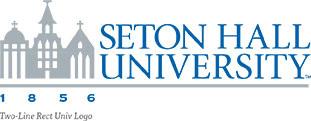




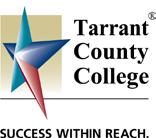




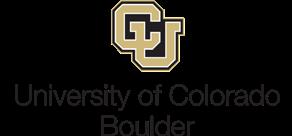
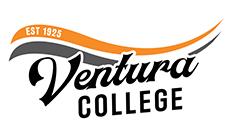
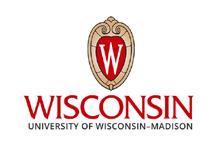
Interns from across the United States learned everything from site operation to how we represent our people on a day to day basis.
35% Are rehired interns and 10%
TRANSITION INTO FULL TIME EMPLOYEES after the completion of their degree
7 STATES hosting 2024 interns in related Rosendin fields and over 10 offices
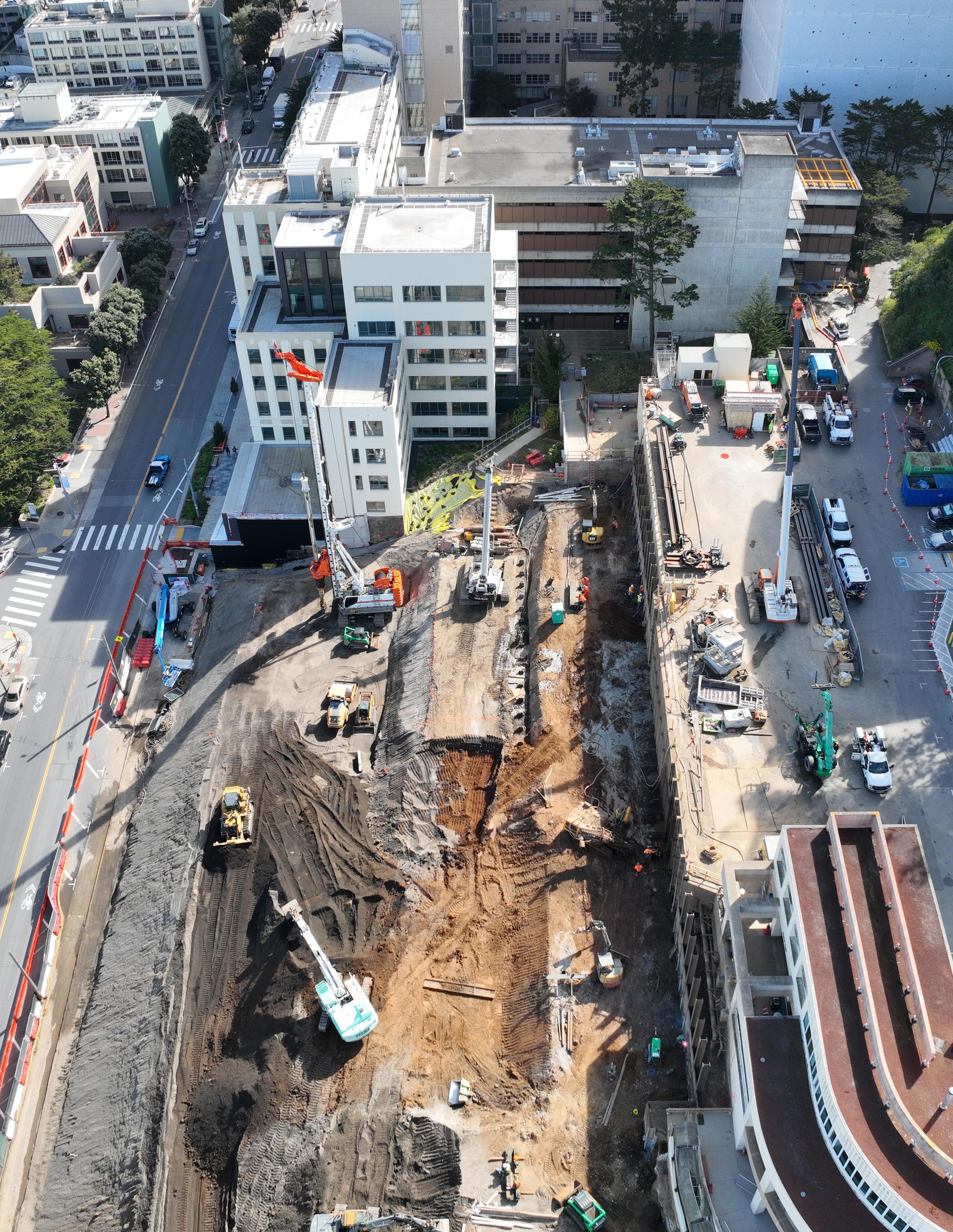
LOCATION: San Francisco, CA
CLIENT: The Regents of the University of California
GENERAL CONTRACTOR: Herrero Boldt Webcor
ARCHITECT: HDR Architecture, Inc.
DURATION: Ongoing
SIZE: 869,550 SQF
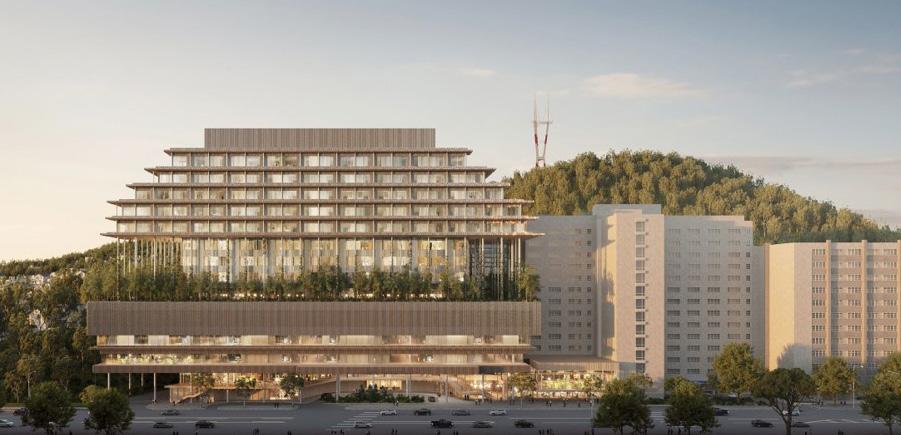
Rosendin is excited to be part of the design-build project team that will construct a new outpatient tower to modernize the University of California San Francisco Parnassus Hospital campus. As a member of the team led by Herrero Boldt Webcor, Rosendin will be on this two-year project to help the UCSF Health System create a healing habitat for San Francisco under the Integrated Form of Agreement project delivery model.
The project scope currently includes the demolition of an existing building to allow for the construction of a new outpatient tower, renovation of existing towers, and tie-in to the existing central utility plant while also bringing in utilities for future expansion.
The research and teaching hospital, established in 1907, was the first hospital in the University of California system. The new $4.5 billion UCSF Helen Diller Medical Center at Parnassus Heights will increase its overall inpatient bed capacity by 37% to 682 beds and expand the Emergency Department by nearly 65%. UCSF will also renovate parts of the existing Moffitt and Long hospitals at Parnassus Heights and seismically retrofit Moffitt to function as one hospital connecting several floors.
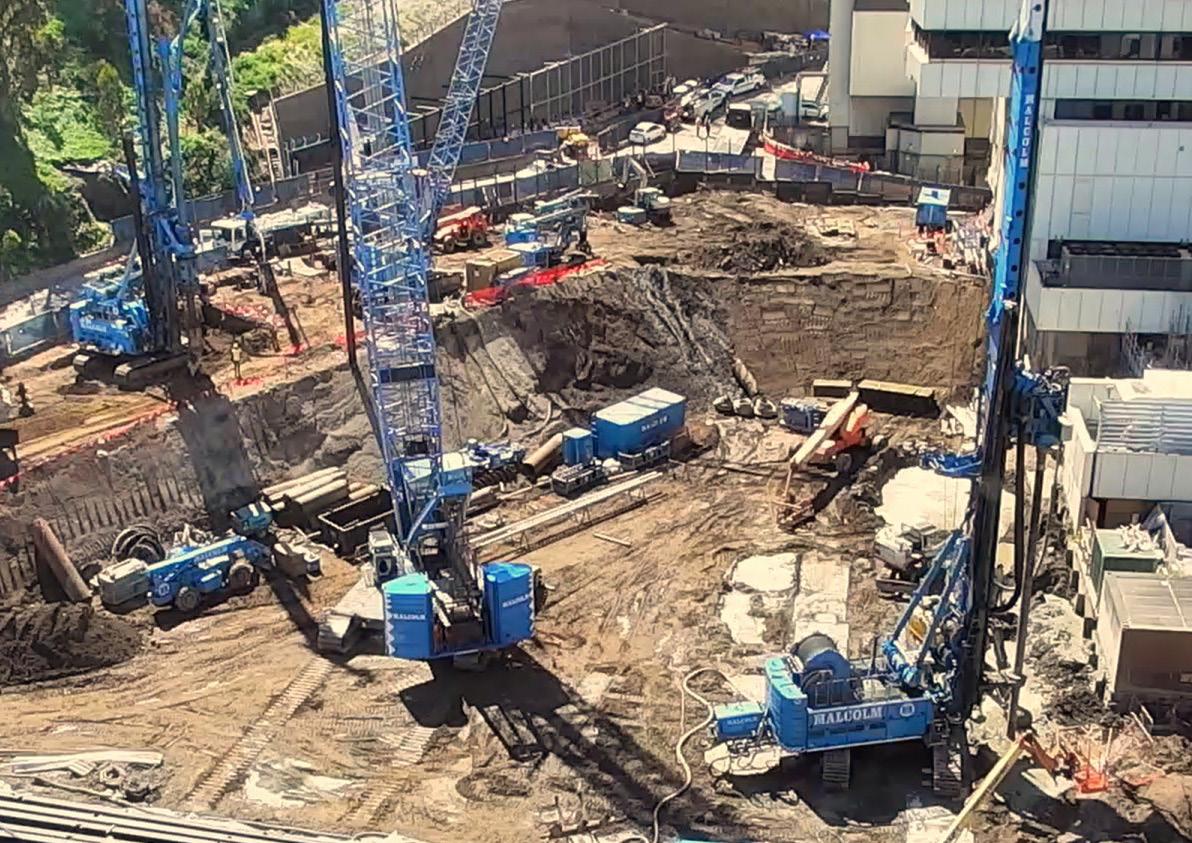



The construction industry faces a challenge, with many experienced field leaders leaving our workforce through retirement while others are choosing to step down due to burnout. The construction industry, as a whole, has found itself in a race to fill the massive chasm. A challenge has plagued nearly every construction contracting business over the past decade or more and into the future. How do we effectively develop field leaders who understand the value of creating respectful and safe work environments? Who are also skilled at building teams through an inspiration to excel? Have the ability to lead others effectively? And deliver predictable and successful outcomes for our customers?
Traditionally, construction field leaders across every trade have developed philosophies regarding leadership strictly based on what they have experienced on the job and only from the people they have worked with. Good or bad, the foundation for their management style, leadership abilities, and project execution strategies become established without ever receiving formal education or training regarding these critical success factors.
In most cases, individuals who become field leaders are left on their own to evaluate what appears to be working and what is not, all while attempting to correct course in real-time. Ask any superintendent, general foreman, or foreman from any trade across the United States about the amount of leadership training they received before taking on their first leadership role. The overwhelming majority will likely look at you like you're crazy and shake their head, none.
This method has never been the most efficient or effective way to develop leadership expertise. However, there is good news. Just because something always was doesn't mean it always has to be.
As Rosendin attempts to backfill the field leadership deficit, we must begin by acknowledging the difficulties that exist far beyond developing and delivering meaningful content to our field leaders. What stifles leadership development can differ from what it appears on the surface. The three bullet points below represent a small portion of the challenges to overcome when developing effective leadership teams within the construction industry.
• Leadership promotions at the field level are often made hastily and are based on an individual's performance within their current role rather than their suitability for the next one.
• In construction, there will never be a "right time" to bring everyone together to discuss essential leadership concepts within a collaborative environment.
• In an industry driven by schedules and a focus on profitable outcomes, formal educational opportunities can easily become "things we need to address at some point… but just not now."
These and many other obstacles will always exist within the construction industry. Contractors have two choices: 1. Accept how the industry historically "develops" its field leaders and hope for the best, or two. Make a determined effort to do something different.
In late 2022 and through 2023, Rosendin began to roll out a pilot program in both Hillsboro and Prineville, OR, called the Field Leadership Development Series. In 2024, delivery of the series has also expanded into Tempe, AZ, and Sacramento, CA. Included in the program are eight modules covering leadership concepts and strategies addressing the very specific leadership challenges our superintendents, general foremen, and foremen face on their respective projects every day.
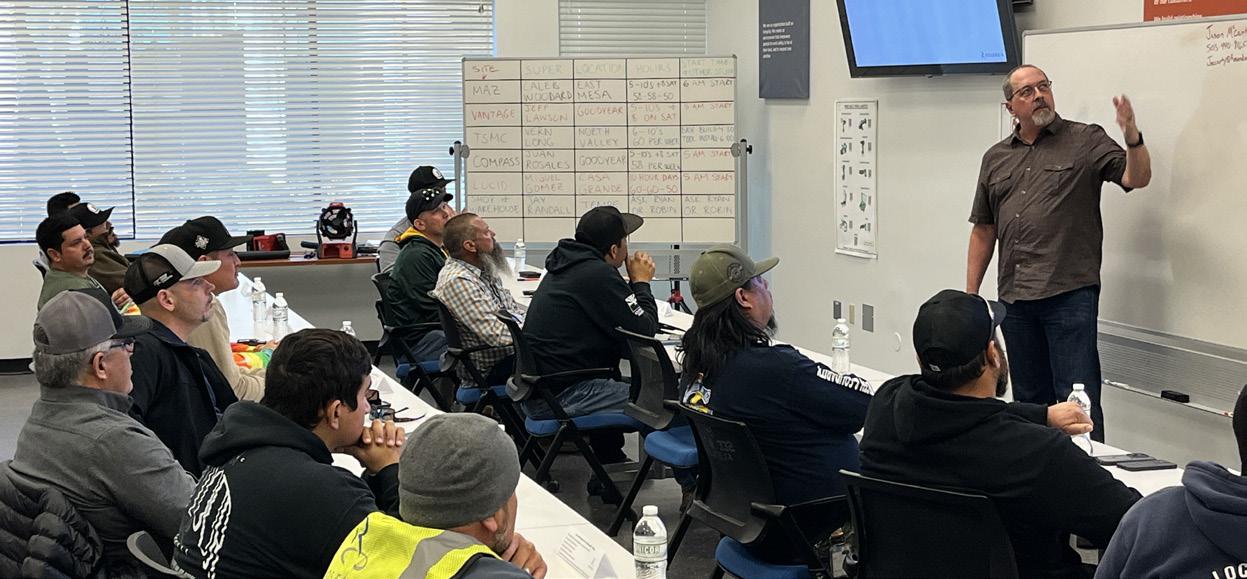
One of the most effective ways for leadership teams to advance collectively is for everyone to have the same opportunity to share personal experiences, challenge ideas, and participate in thought-provoking conversations. For meaningful and widespread leadership skill sets to improve, it is critical for superintendents, general foremen, and foremen to attend and participate together. The series serves as an entry-level path for those new to leadership while simultaneously creating an environment of self-reflection for more seasoned leaders.
Many excellent leadership development programs are available on the open market; however, only a select few specifically address leadership within the construction industry. Although most leadership concepts are universally agreed upon, there can be a disconnect amongst leaders across varying industries based on the terminology used and examples provided. Leadership programs attempting to speak in general terms across all industries leave our field leaders questioning if anyone at the highest management level truly understands their specific challenges.
The Field Leadership Development Series is unique because it is developed and delivered by a licensed journeyman electrician with 33 years of experience in the electrical industry and over two decades of leading teams on various project types. The ideas explored, examples provided, and stories told tie directly into the day-to-day life of an electrical field leader.
Each module is presented in-person over a two-hour time frame. Attendance ranges from 35 to 50 field leaders with varying leadership experience and from different project sites within a region. The goal of delivering a comprehensive field leadership series is to ensure both new and experienced leaders have an opportunity to come together to share perspectives while discussing what it means to be an effective leader in the construction industry. Each series module follows a structured presentation and exercises focused on the subject matter, but most importantly, each presentation is designed for instructor-led group discussions
Module One sets the tone for the entire series by guiding attendees through an in-depth look at what it means to be an effective leader in the construction industry. To many, it may seem that the only metrics used to describe a successful outcome are that a project is completed on time and returns a profit. While those are certainly two measures of a successful outcome, many other factors must be explored when discussing what it means to be a capable, respected, and successful field leader.
Module Two examines six qualities that all great leaders possess, allowing them to influence, inspire, and bring positivity to their teams: Respect, Credibility, Character, Ethics, Integrity, and Professionalism.
Modules Three, Four, and Five draw attention to the development of comprehensive plans, best practices for field leaders to communicate their vision, and execution strategies that provide the best opportunity for a successful outcome.
As the construction industry continues to be inundated with software platforms promising to solve every problem, it has become nearly impossible for anyone to become proficient with all of them. Module Six examines the platforms that are most important in the daily lives of our field leaders.
Module Seven emphasizes the importance of crew morale. Unsurprisingly, the safest, most productive, and most profitable projects are those where team members feel valued and empowered. Crew morale isn't magic; it is a collective mindset based on the genuine trust and engagement of those at every level of leadership.
The construction industry can be a very stressful environment to work in, and construction workers have one of the highest suicide rates in the country, as reported by the CDC. Module Eight places focus on both the physical and mental health of our field leaders and considers best practices for keeping stress manageable.
If you have questions about the Field Leadership Development Series, please contact Rosendin's Training Department for more information.
MODULE 1: A Field Leader’s Role in a Successful Outcome
MODULE 2: Leadership Qualities
MODULE 3: Effective Communication
MODULE 4: Planning and Organizing
MODULE 5: Project Execution
MODULE 6: Technology and Digital Documentation
MODULE 7: Job Site Interactions and Crew Morale
MODULE 8: Stress Awareness and Management
By Tim Robert, Quality & Compliance Manager & Brandon Floyd, Director of Quality
In the first part of this year, the Quality & Compliance team in the Quality Department compiled all Job Review results captured in 2023 and released the 2023 Job Review Annual Summary in February. The Job Review process is a quality initiative adopted by Rosendin in early 2021, designed to help project teams stay on track for success throughout a project's life cycle and provide a path for removing nonvalue-added processes and continuous improvement. By measuring procedure adherence at set project completion milestones, teams at various levels of the organization can gather the value-added information needed to drive operational excellence and meaningful change.
Our revised Job Review process for 2023 has allowed the organization to gather a full year of comprehensive procedural adherence data on all projects over $3M. This data includes 209 job reviews completed throughout 156 projects, 33 Divisions, and all five regions, allowing the Quality & Compliance team to provide an independent and objective assessment of the adequacy of adherence to standard procedures.
A primary benefit to having a full year of robust data is that it establishes a baseline for Rosendin to measure improvement from implemented corrective actions meant to address obstacles to Rosendin achieving its strategic objectives. Moreover, efforts towards improving our operations will prove that Rosendin is committed to helping our employees and customers achieve operational excellence.
Moving into the second half of 2024, let our Quality & Compliance team answer that call to action and keep driving toward our mission of Building Quality by continuously improving our procedures, removing waste from our job processes, and remaining customer-focused.
As Rosendin continues its journey of growth and excellence in our quality program and collaborative team dynamics, the Quality Department is thrilled to announce our transition from BIM 360 Field and PlanGrid to Autodesk Build (Build).
Rosendin has relied on BIM 360 Field for quality inspections and PlanGrid for seamless project information sharing for nearly a decade. Now, with Autodesk Build, we're embracing a unified platform by integrating the best features of both tools while introducing new functionalities.
Our Quality Department has partnered with Autodesk and is hitting the road to provide hands-on training as projects initiate in Build. This training offers comprehensive insights into Build's similarities with PlanGrid and BIM 360 Field and showcases novel features to enhance communication and workflows across our project teams.
Autodesk Build empowers our teams to bridge information gaps among various project areas, ensuring data collection for improved visibility and continuous enhancement of our processes.
Excitingly, Build brings forth many new features to streamline our workflows. Gone are the days of paper drawings and highlighters—now, asset markups in the sheet's module allow for easy tracking and visualization of asset status and project progress. Additionally, asset tracking facilitates a quick understanding of asset status and project progression.
The Schedule module provides swift visibility and schedule sharing across the entire project team, with the added capability to comment on Schedule activities. Furthermore, meetings can be scheduled seamlessly, with minutes easily carried over for efficient and productive sessions.
These enhancements are just the beginning of how Autodesk Build will elevate Rosendin's project delivery. For any inquiries or to explore available training opportunities, contact the Quality Department at quality@rosendin.com . Let's embrace this exciting transition and propel Rosendin toward even greater success!
A Quality Champion consistently delivers exceptional services, processes, or practices, surpassing the expected standards and setting a high benchmark for quality. They can provide many benefits for businesses, such as improving customer satisfaction, enhancing reputation, increasing productivity, and reducing costs.
Please take a moment to congratulate our first quarter Quality Champion recipients and help us maintain our quality culture by recognizing the positive contributions and outcomes of those employees who demonstrate their commitment throughout the company.
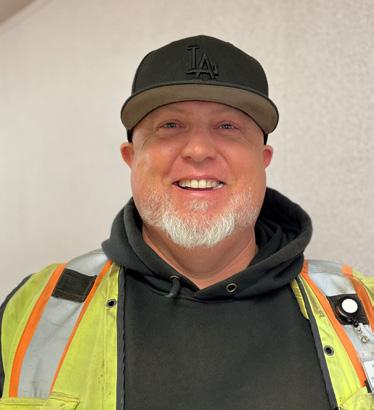
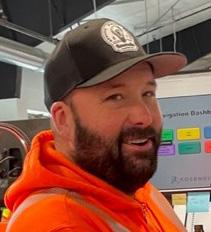
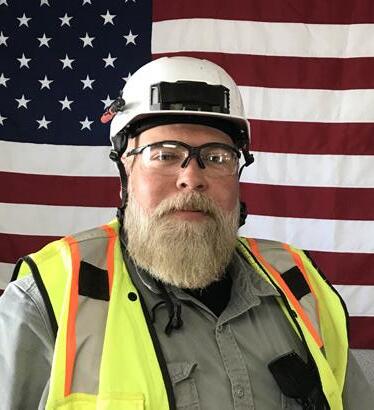
Jubal is a standout nominee for his meticulous attention to detail and commitment to ensuring teams prioritize quality. His dedication goes beyond the norm, setting a new standard in the division. He is recognized for spending extra time directing his team and is confident that this investment will yield a top-notch product. Jubal ensures alignment between client and project management teams, preventing rework, and his exceptional oversight has resulted in the successful completion of multiple large-scale, high-quality, and profitable projects.
CHRIS TAYLOR
Chris played a pivotal role in the crew's successful installation of DLO cable in PTX main switchboards and generators. Through effective communication and meticulous adjustments, the team achieved a top-tier installation. After inspection by a third-party company and META, it was deemed the best in the fleet thanks to the incorporation of valuable lessons and years of experience. The optimized cable routing not only enhanced safety, but is set to become the new standard across all sites while reducing inductance and creating a safer work environment.
Eric shows exemplary dedication to safety and quality. While overseeing testing and terminations, he discovered lapses in lockout tagout procedures while pre-testing existing DC cables. Promptly halting work, he alerted his superiors, led a crew-side check, and collaborated with the site operations team to ensure adherence to Rosendin standards. Eric's meticulous attention to detail averted potential injuries and equipment damage, showcasing his unwavering commitment to maintaining high-quality standards. Watch for your next opportunity to nominate a Quality Champion!
DO YOU KNOW ANYONE WHO:
• Has Assisted in Reducing Costs by Being Proactive in Planning Tasks?
• Has Exceeded Expectations Through Doing the Right Thing?
• Is Focused on Completing Tasks Correctly the First Time?
• Emulates Rosendin’s Mission and Core Values?
• Is Quality-Minded?
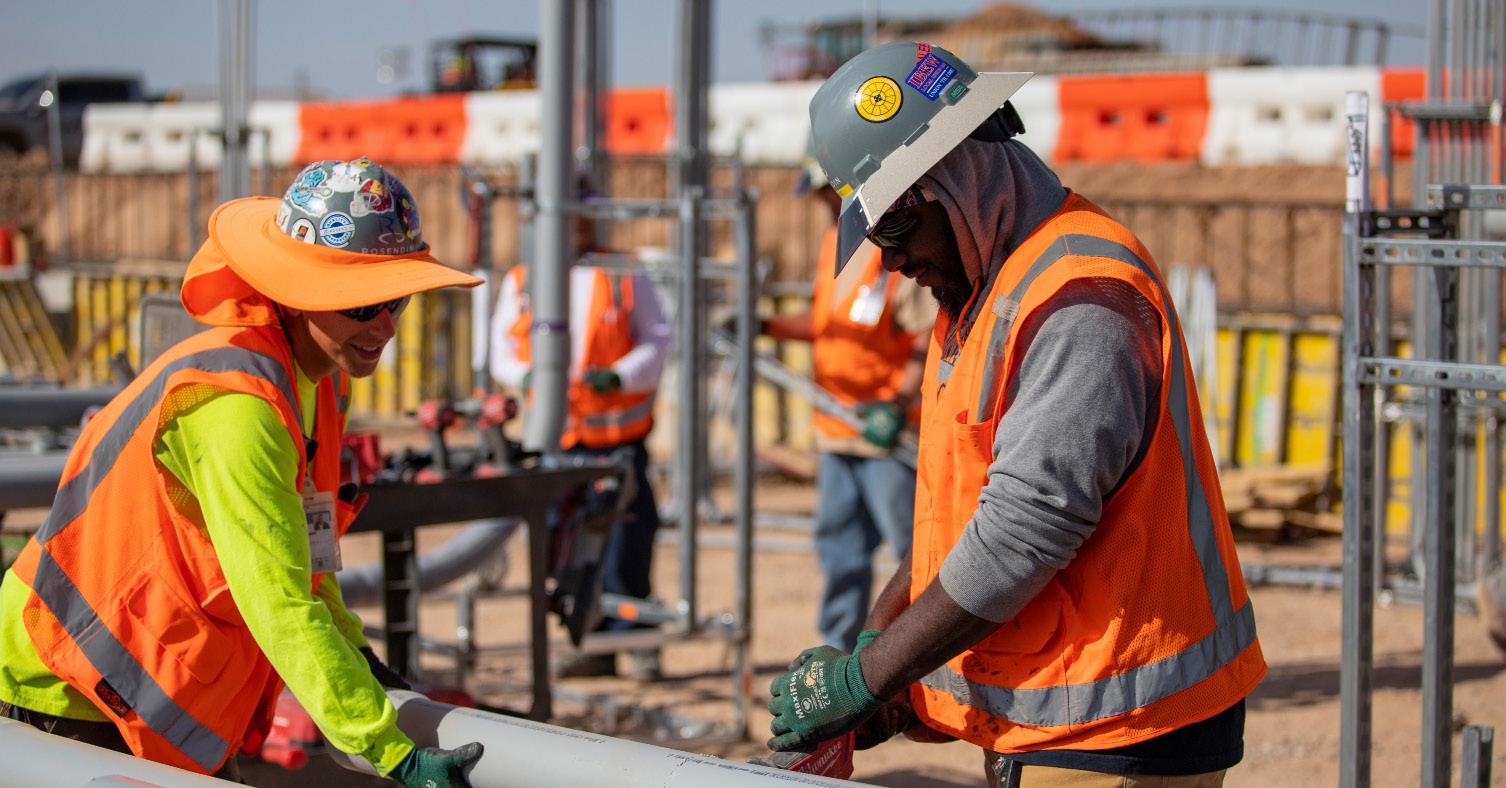
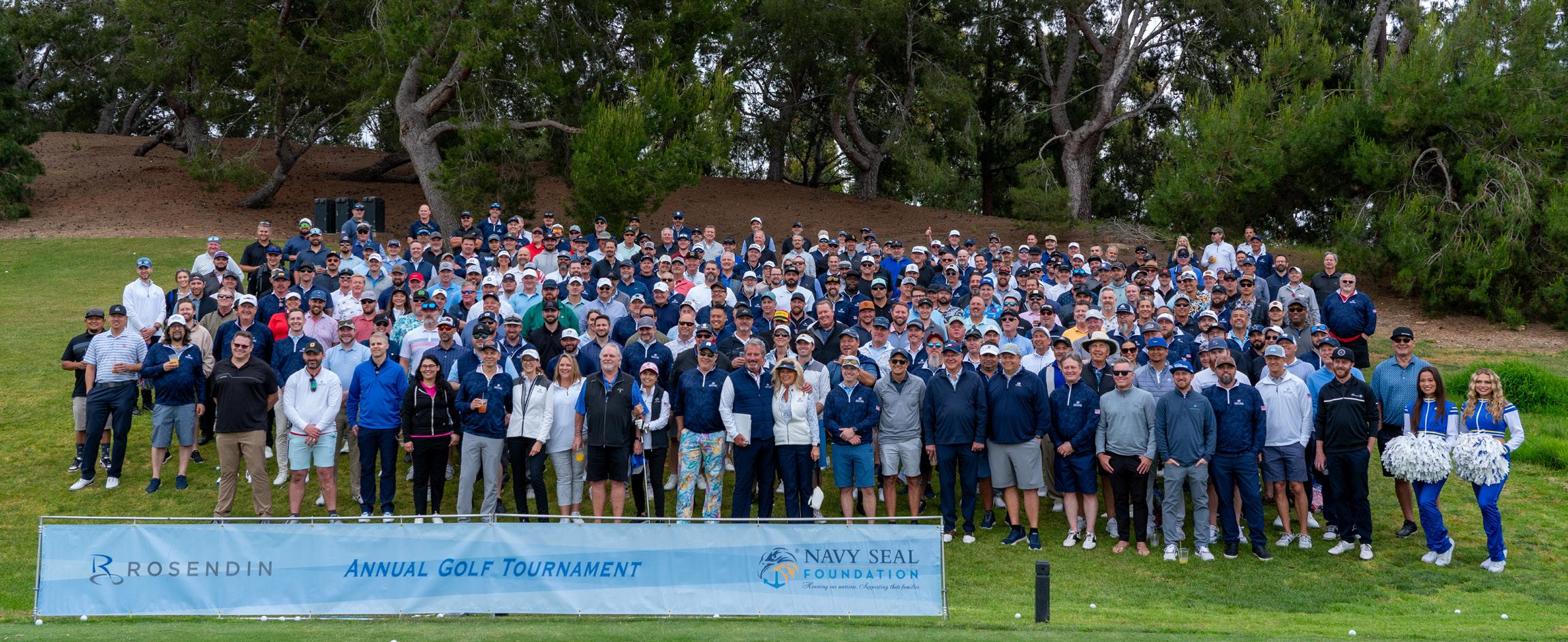
On May 23, construction companies teamed up to support veterans and families at Rosendin's 9th Annual Golf Tournament and Auction held at Pelican Hills Golf Club in Newport Beach, CA. Through entry fees, sponsorships, and an auction, $375,000 was raised for the Navy SEAL Foundation (NSF).
Sponsors for the tournament included Sunbelt Rentals, 3M, Border States, CED, Granite, Dave Evans & Associates, Hawkeye Rentals, United Rentals, Walters, Performance Lighting Systems, Rexel USA, Bird & Associates, MAIN Electric, OneSource Distributors, Wesco, GameChange Solar, and more.
Since 2016, the annual tournament has collected over $3.5 million to provide critical support for the warriors, veterans, and families of Navy SEALs and Special Warfare Combatant-Craft Crewmen (SWCCs).
NSF is a high-performing organization committed to excellence and offers over thirty programs under five Pillars of Support: Strength, Resilience, Health, Education, and Community. Charity Navigator has awarded it a 4-star rating since 2009 and a perfect score of "100" since 2014 for financial health, accountability, and transparency. The Foundation ranks above 99.9% of over 200,000 charities nationwide, with ninety-four cents of every dollar donated directly funding its programs or being retained for future mission use.
"We are especially grateful to David Lincoln and the entire Rosendin Electric family for their steadfast dedication and generosity in supporting NSF and the NSW community," said Robin King, CEO of the Navy SEAL Foundation. "The annual Rosendin Golf Fundraiser continues to be one of our favorite events, providing critical programs and services to the warriors and families through their support of the Foundation. Thank you to all who participated, volunteered, and sponsored."
"Thanks to the collaborative efforts of Rosendin's partners and sponsors, we exceeded our fundraising goals to support NSF and the veterans and families it serves," said David Lincoln, Senior Vice President at Rosendin and NSF Ambassador. "We work with many veterans who have found successful career paths at Rosendin and are proud to continue organizing efforts that will significantly impact the communities we serve and work with daily."
Rosendin was founded in 1919 by WWI Navy Veteran Moses Rosendin. During WWII, Moses expanded his business to accept contracts from the shipyards that sprang to life around San Francisco Bay and employed military veterans. Today, Rosendin proudly employs veterans from every military branch across the U.S.
To learn more, visit navysealfoundation.org .

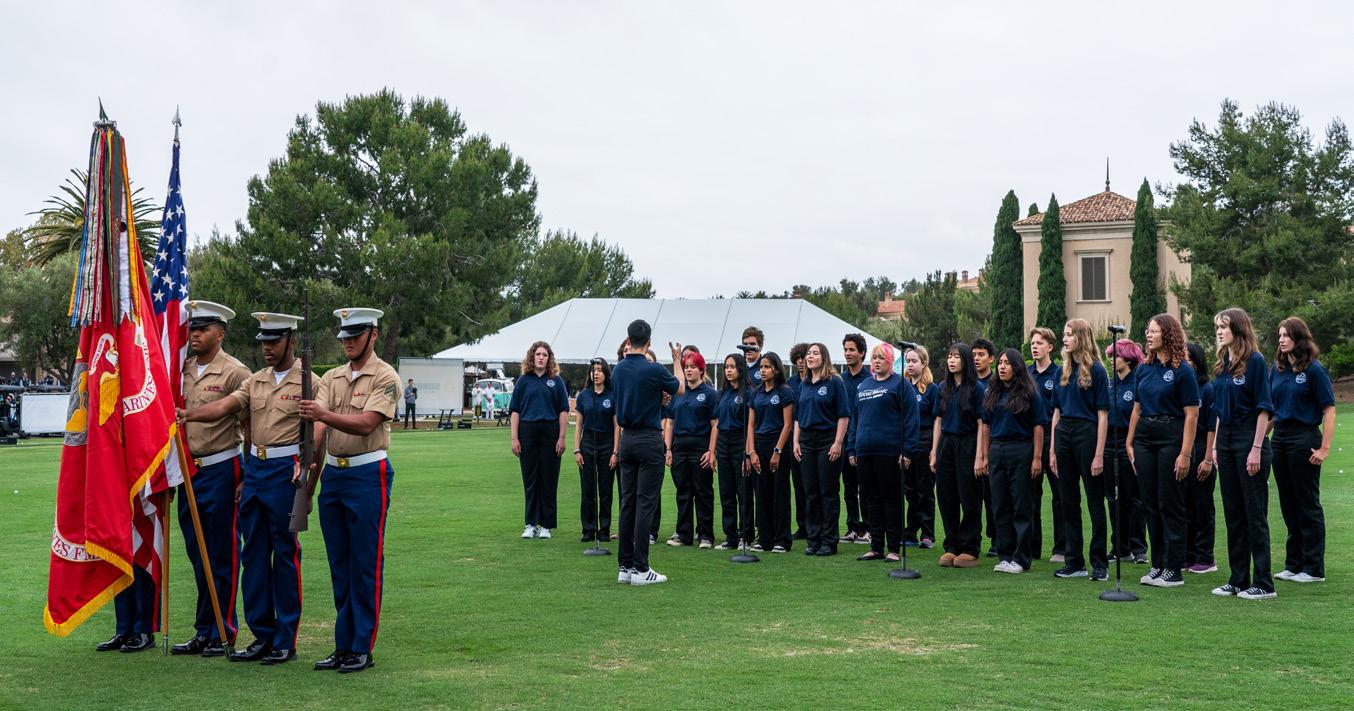
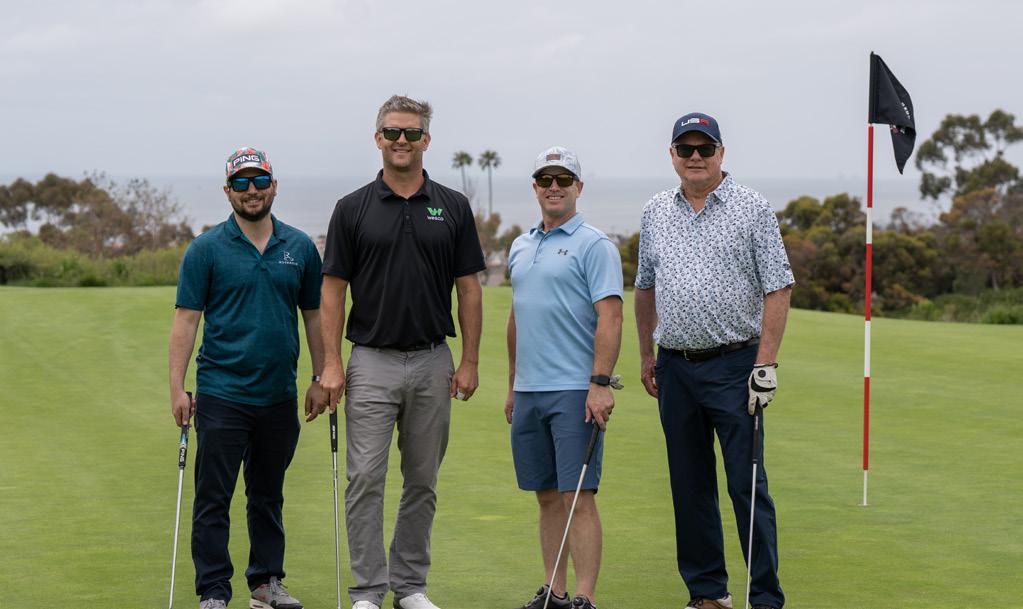
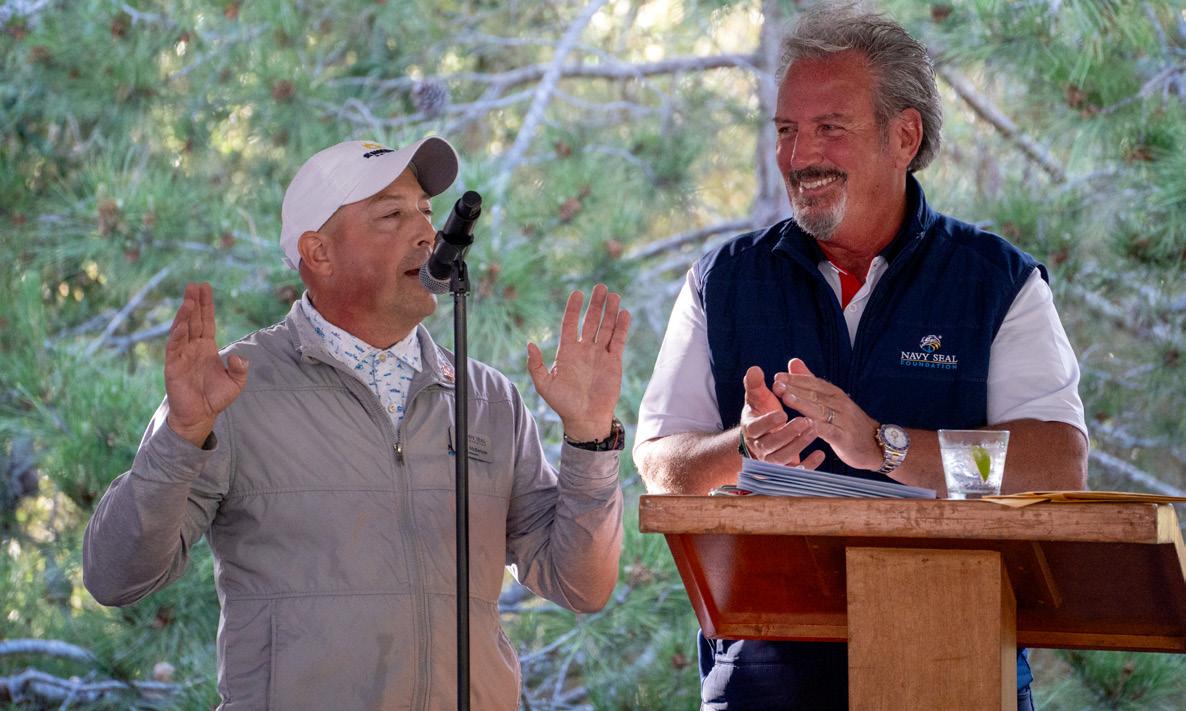

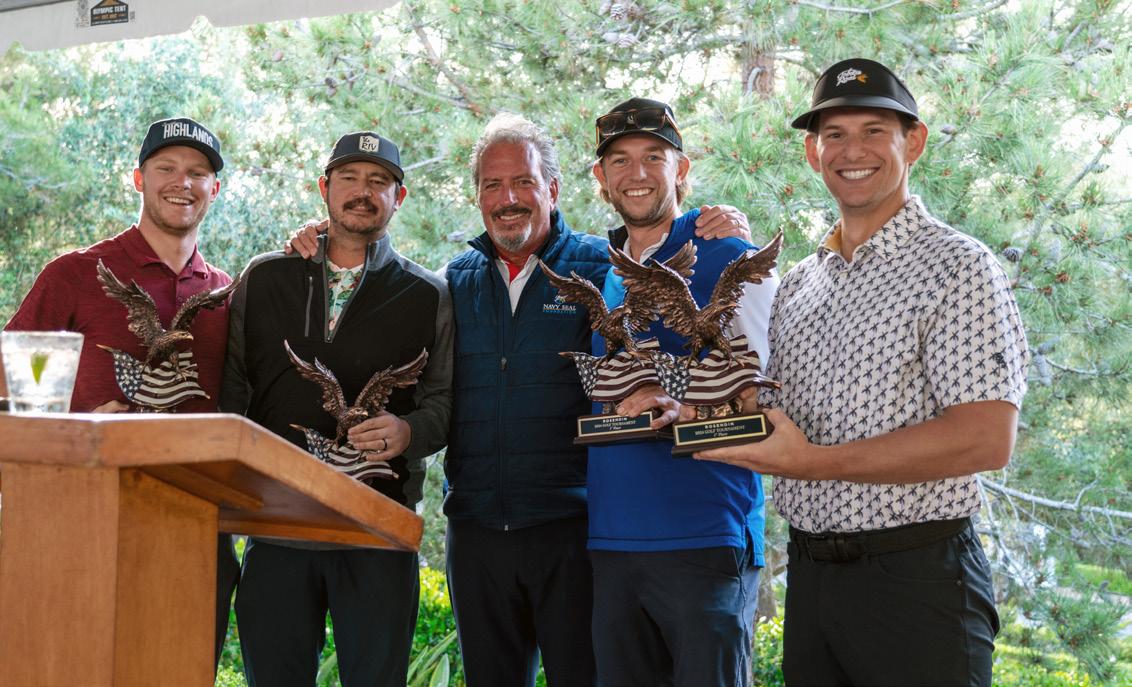
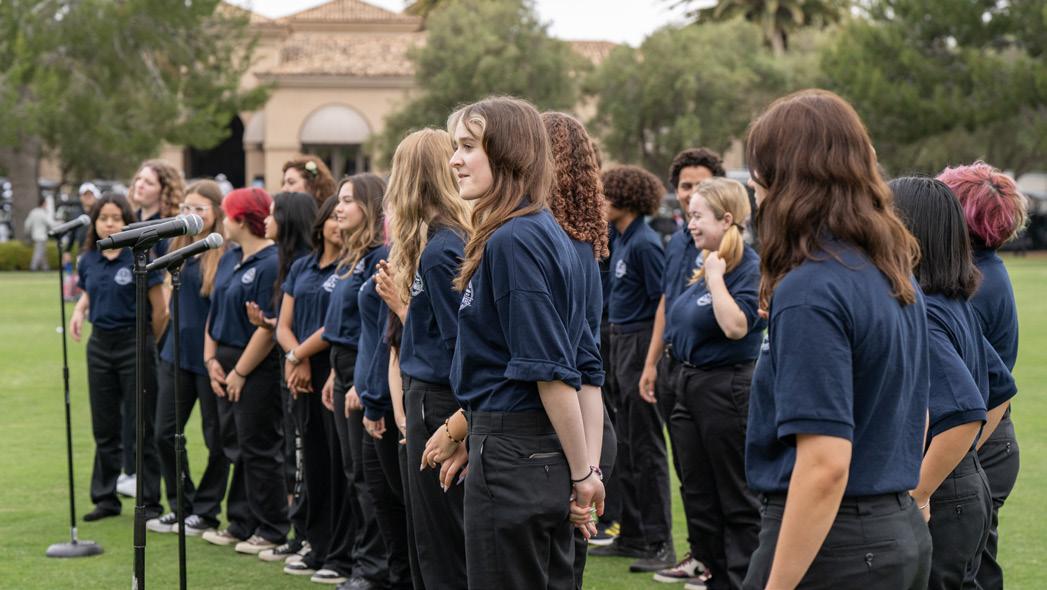

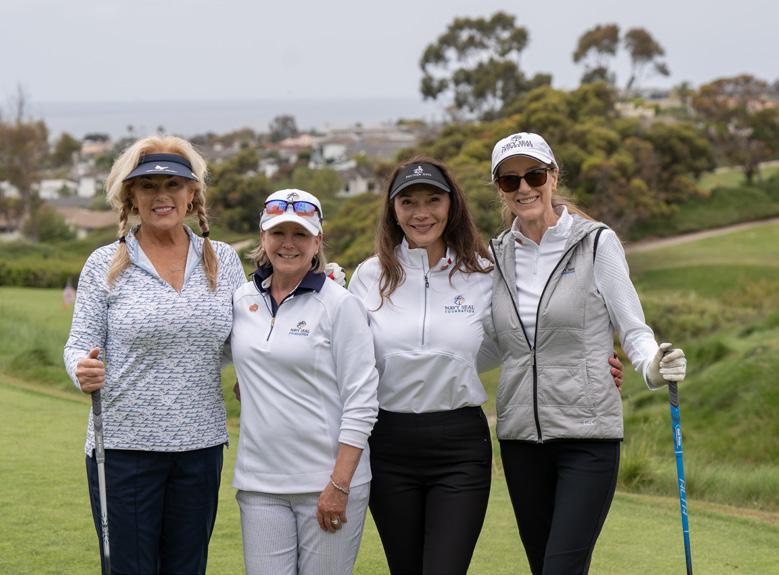
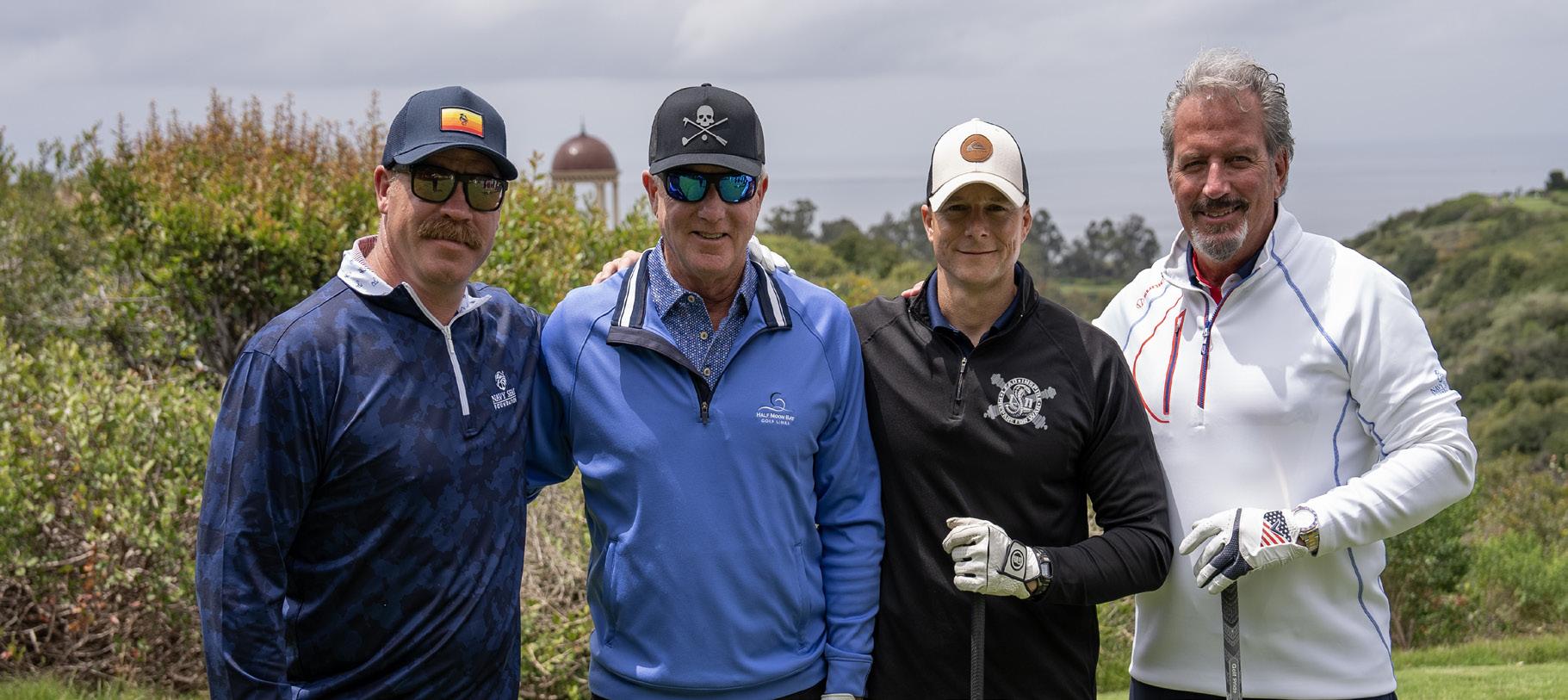

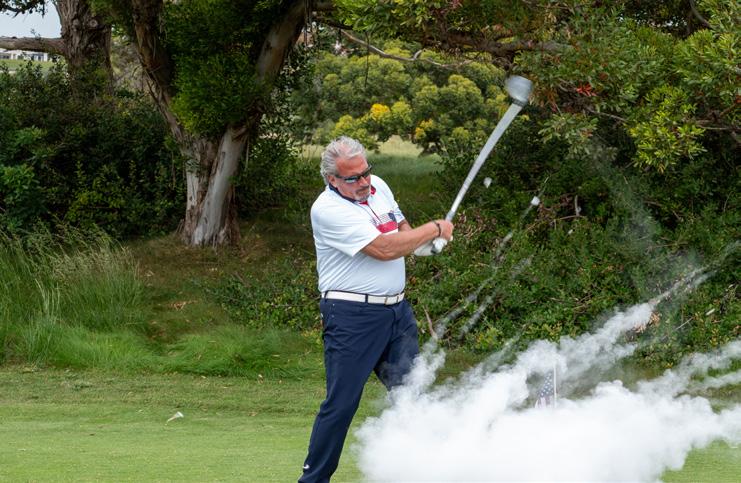



As employee-owners, Rosendin’s success and the pride of ownership is shared by everyone. The growth of Rosendin’s stock is based on the company’s performance. Because of this, employee-owners have a vested interest in increased productivity, greater profits, and improved efficiencies as they are directly contributing to growing their own value in the company. In addition, employee-owners experience increased satisfaction in knowing their efforts and those of others can bring benefits beyond regular wages. As everyone works smarter and improves productivity, the ability to compete more effectively in the market will also improve.
The ESOP Trust receives contributions annually from Rosendin Holdings, and the amount depends on many factors. In Rosendin’s ESOP, employees do not contribute their own money. The amount allocated to specific employee accounts is based on the employee’s eligible compensation.
For example, if an employee makes $60,000 annually, and the ESOP contribution for the year is 10%, then the employee’s account increases by $6,000 (10% of $60,000 = $6,000). This amount is used to purchase shares of company stock. Individual ESOP accounts will grow tax-free while employed, based on changes in company value, contributions made to individual accounts, or any dividends that are declared until the ESOP distributes a “vested” account balance to the employee-owner.
The company can contribute to an ESOP account for each eligible employment year. The non-forfeitable right to all or a portion of an ESOP account is subject to a process called vesting. Each subsequent year of service increases the percentage an employee is entitled to receive when he or she retires or otherwise leaves the company. If the employee leaves before becoming 100% vested, they will receive that portion of their account balance to which they are entitled under the vesting schedule.
Employee-owners become 20% vested on the anniversary of their 2nd year of employment and vest an additional 20% each year until the anniversary of their 6th year, when they become 100% vested.
Rosendin’s stock is privately owned, which means that the stock is not traded on a stock exchange. The per-share value of the company stock is based on an appraisal performed by an independent valuation firm. The stock valuation is updated annually, and each employee-owner participant is informed of the stock value in their account.
When an ESOP participant retires or otherwise leaves the company and is eligible for a distribution, the value of the benefits distributed will be determined by the most recent valuation.
Employee-owner accounts have the potential to be significant compared to other employee benefit plans. The account’s value depends on several factors: compensation, company growth and performance, and annual company contributions.
If the company achieves its goals and sees steady increases, employees can see significant wealth accumulation when they leave the company. In turn, this provides employee-owners with a sense of security to look forward to more than they ever thought possible!
A recent National Center of Employee Ownership (NCEO) study showed that average retirement savings for an employee-owner were more than double that of non-employee-owners. In addition, employee-owned companies provide more stability than traditional companies and are not dependent on the stock market for their performance. ESOPs also tend to be less affected by rapid swings in the economy.
Click here to read more about employee-ownership at Rosendin.
Rosendin is proud to be employee-owned, and our entire team carries a sense of accountability for the successes we experience. Our employee-owners see their personal value in the company and understand their responsibility. We all have a stake in our future and are motivated and empowered to provide the very best value and service. Congratulations to the following individuals who became 100% vested during Quarter 2!
Dylan M.
Fabian A
Jeffrey S.
Monique W.
Stephen K.
Bret J.
Courtney I.
Eric S.
Gino T.
Lee R.
Marissa S.
Melissa C.
Norman D.
Erika F.
Ambyr L.
Andrew T.
Brendan B.
Eric W.
Troy V.
Nicholas A.
Jared S.
Jack K.
Marjorie E.
Michael P.
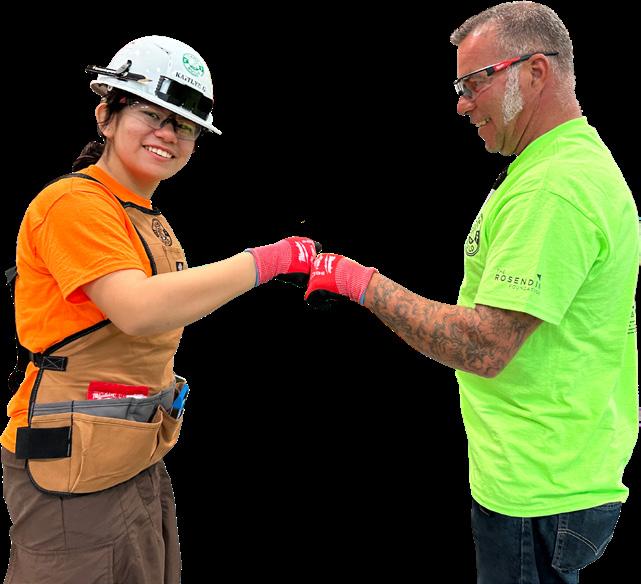
In the second quarter, The Rosendin Foundation focused on Innovation. As mentioned last quarter, our teams developed and rolled out a second-year curriculum for TRF Camp Build. Excitingly, this quarter, we implemented that planning! Our returning campers had the opportunity to use saws, sanders, and electric nailers to build step stools and bookcases, which they stained. They also learned welding, bent conduit into hearts, and wired a switch lab both hands-on and virtually!
In May, TRF Camp Build was hosted at MPS in Sherman, TX. Fifteen (15) campers learned how to safely operate power tools, bend conduits into offsets and hearts, wire and build lamps, and build virtually using computers and Legos. Campers and their parents also learned about the different careers in the electrical industry and the classes and clubs they could join in high school that could help put them on the path to becoming an IBEW apprentice.
In June, TRF Camp Build graduated 20 returning campers and 57 first-time campers in Anaheim, Phoenix, and Austin. Our second-year campers eagerly shared what they built using the knowledge and tools they received in last year's camp. Many expressed a strong desire to enter the construction industry, and parents shared how transformative camp was for their child(ren). You can read some of those messages here.
We close out our TRF Camp Build 2024 season in July in Charlotte, NC, with the introduction of its first week long camp. Subscribe to our YouTube channel to see the videos from our Anaheim, Phoenix, and Austin camps and watch this transformation and the campers' potential. You will also see the premieres of our videos during the Charlotte camp.
On behalf of the TRF Board, thank you to our TRF Camp Build sponsors and volunteers. Your support and assistance allow us to provide free construction camps for middle & high schoolers nationwide. Your support enables campers to learn how to build safely by being taught by professionals in our industry.
When the The Rosendin Foundation presented TRF Camp Build two years ago, it received overwhelming support as it epitomized our core values. We care for our community by donating the doghouses and bookcases our campers build to local nonprofits. We share what our campers are learning and building through our social media channels and local news outlets. We also take the time to educate not just the campers but our broader community on why working with your hands is an incredible accomplishment and opens doors to future opportunities.
We Listen to feedback and adjust where needed to ensure our campers have a positive experience. We took the lessons we learned in our 2023 camps to our 2024 camps to continue excelling. We innovate by providing opportunities for boys, girls, and non-binary children to learn how to build safely and open them up to exploring new career paths, especially in a field that has not always been viewed as a lucrative alternative to college.
While TRF Camp Build has been our quarter highlight, our teams have been working on much more.
Our Fundraising Committee and staff are ramping up for the 3rd Annual TRF Golf Tournament and Auction presented by Border States and Sunbelt Rentals. Thank you to our steadfast supporters for returning as sponsors and our new sponsors to support our community-building efforts and help us Excel. We are currently at 70% for this year's fundraising goal, and with your help, we aim to reach $350k in revenue! If your company or association is interested in sponsoring, sponsorship opportunities are still available
Additionally, in Q2, with the assistance of the Rosendin and MPS field leadership and safety teams, we implemented new listening tools to share information with our field team members about The Rosendin Foundation and how to get involved. Our monthly newsletter continues to reach the largest audience, and we recently completed and shared our 2023 Annual Report on our website.
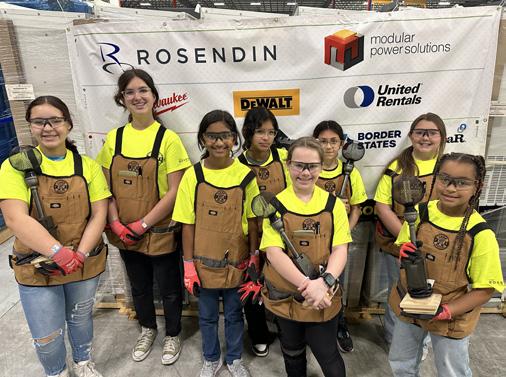
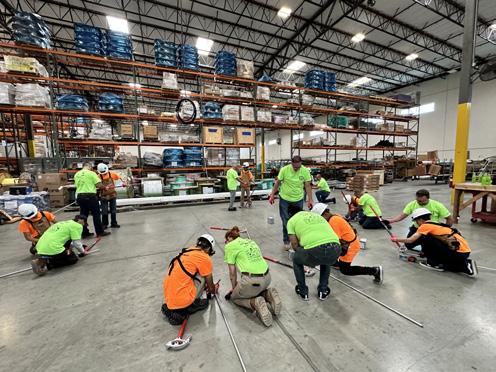
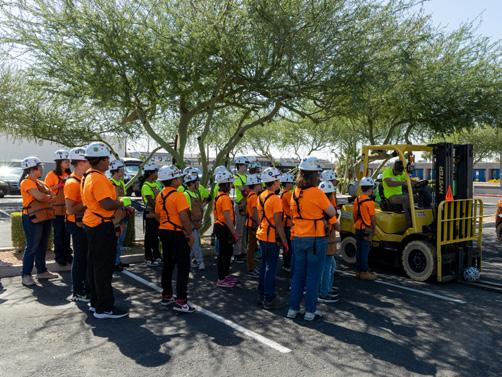
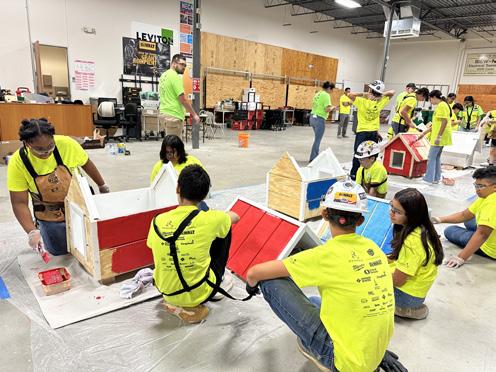
Our Communications Committee members demonstrate we Care by setting up local Service Days and donation drives nationwide at Rosendin and MPS offices. They are always looking for new opportunities to give back. If there is a nonprofit organization you are passionate about that meets The Rosendin Foundation's focus area, contact your local Communications Committee member and see if there is an opportunity to partner. Please take advantage of the opportunity to give back locally.
In Quarter 3, our Grant Making Committee will demonstrate how much we care about our communities when we complete our 2024 grant cycle. We will also launch our new grant-making platform, which should ease the burden on staff and our grant-making committee members when evaluating grant applications. We have $1.3 million in grants for 2024, and we will Share how these dollars are distributed throughout our local communities. If you know a great local nonprofit that is positively impacting our community and meeting our focus areas, please encourage them to apply for a grant. Annual Grant applications are due by July 1st.
I am in awe of the community of service The Rosendin Foundation has built and continues to grow. Thank you for joining us in building this inclusive community.


Click the links to see photos and learn more about Service Days this quarter.
Charlotte, NC Seed Packing
Liverpool, TX Bag Drive
Tempe, AZ Meal Prepping
Texas Wide Book Drive
Prineville, OR Bottle/Can Drive
Sacramento, CA Habitat for Humanity
Napa Valley Support Services
Sterling, VA Food Drive
Anaheim, CA TACA Carnival
Prineville, OR Flower Baskets
Aiea, HI Bed Builds
Intern Week - East Backpack Stuffing
Intern Week - West Backpack Stuffing
In June, we approved an Emergency Grant of $1,300 to help with a new automatic door for improved accessibility.
Click Here to read more

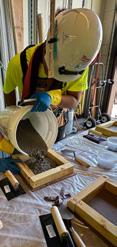
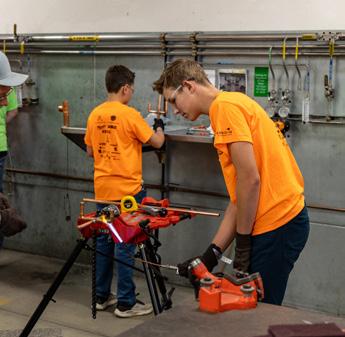
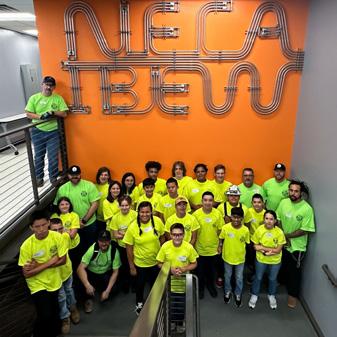
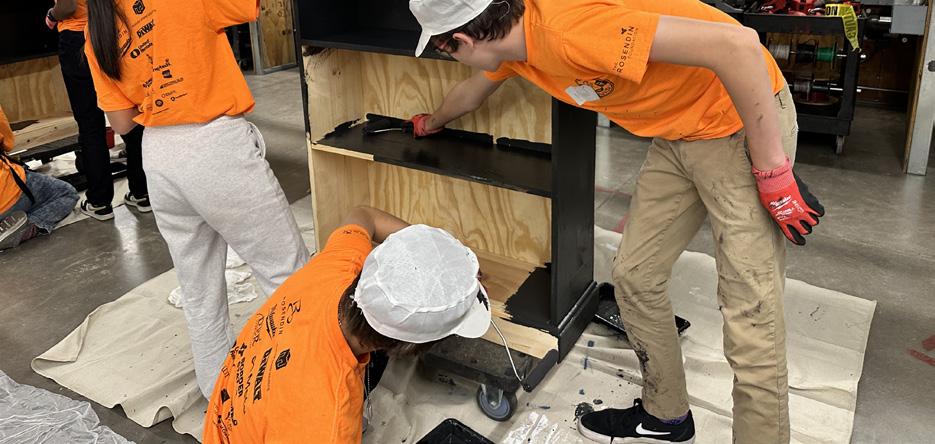


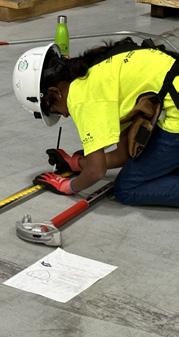
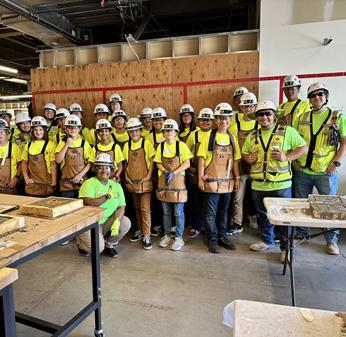
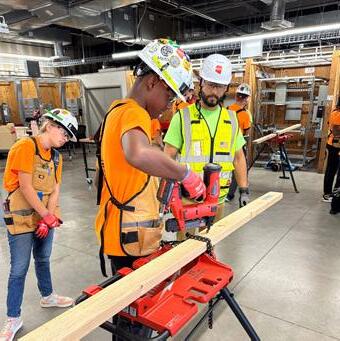
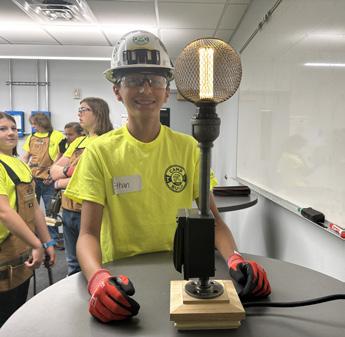
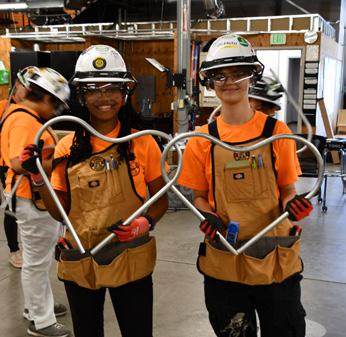
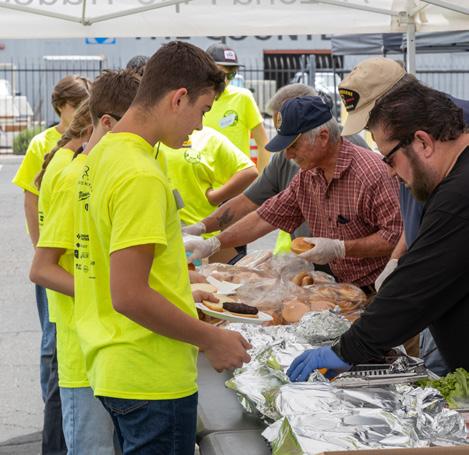
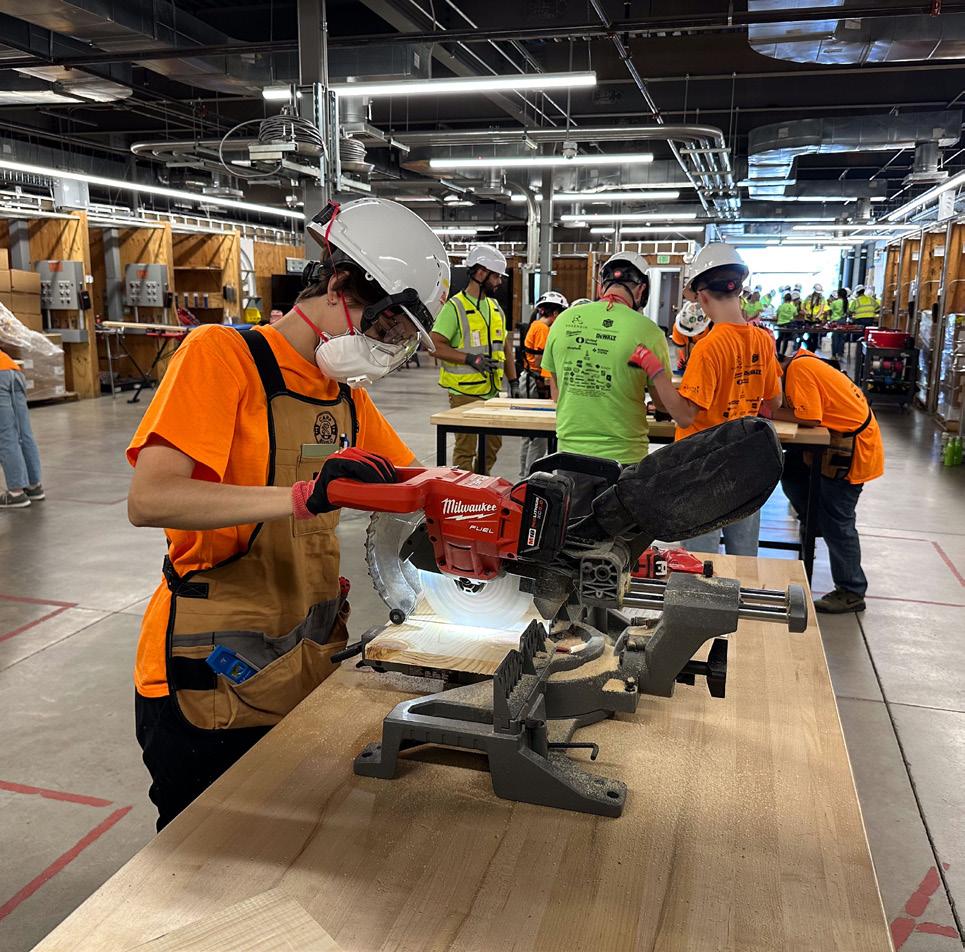
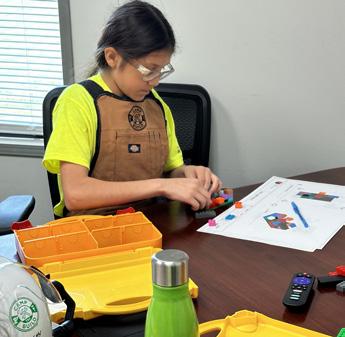
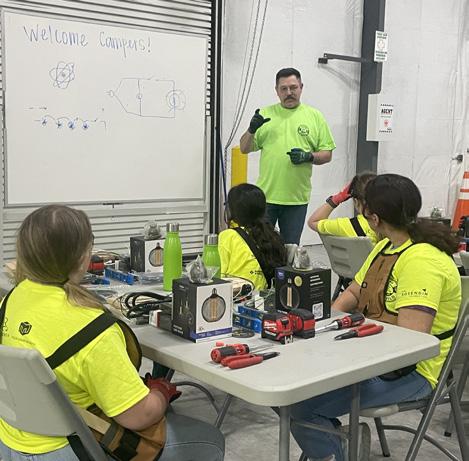
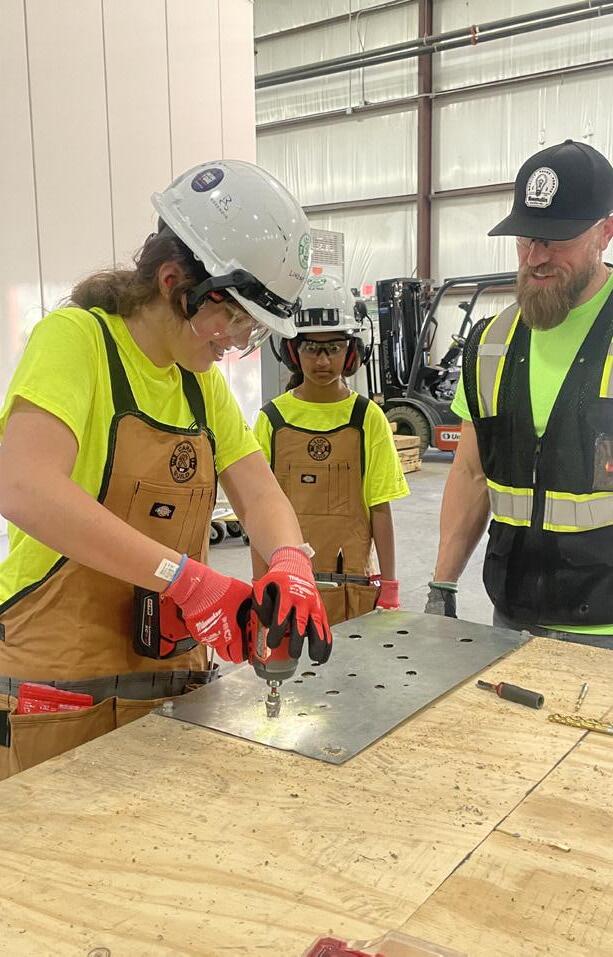
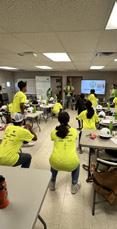
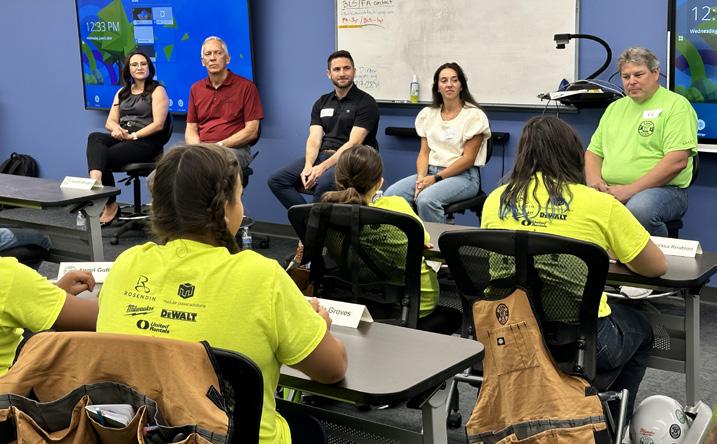
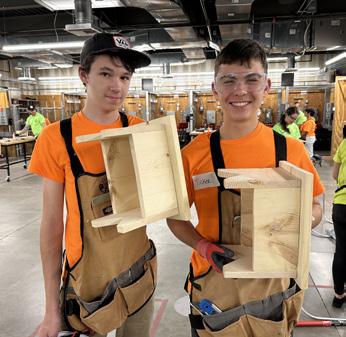
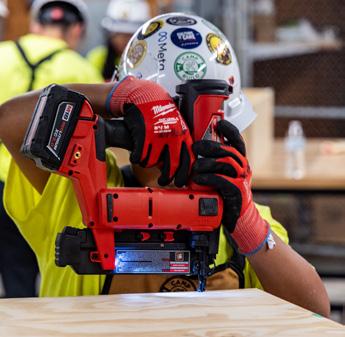
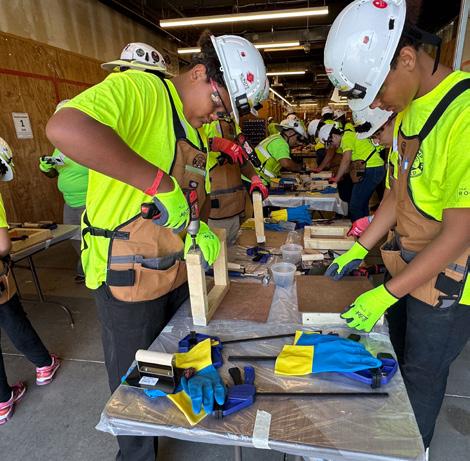
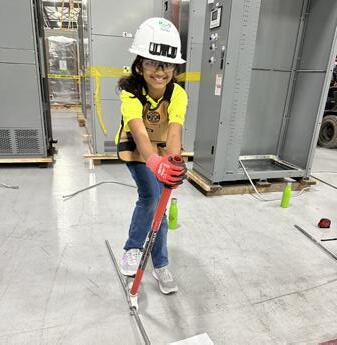
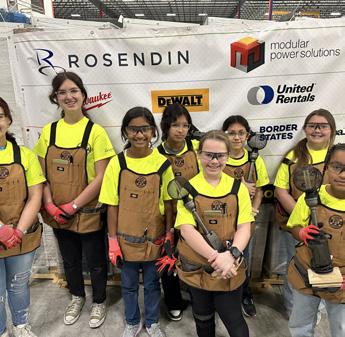
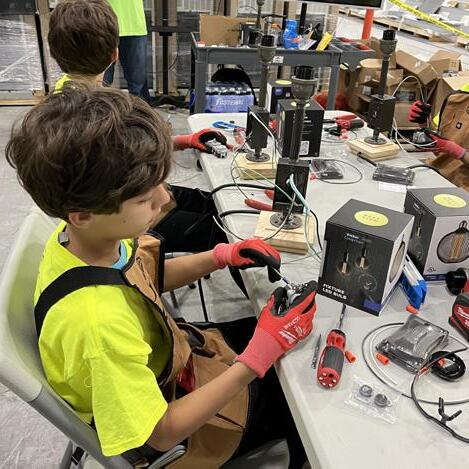
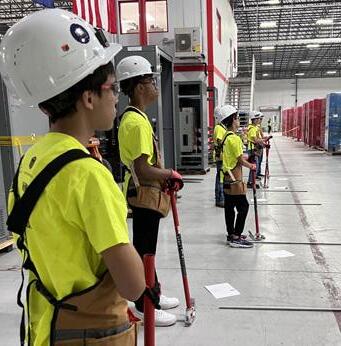
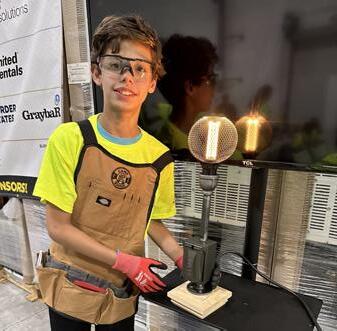
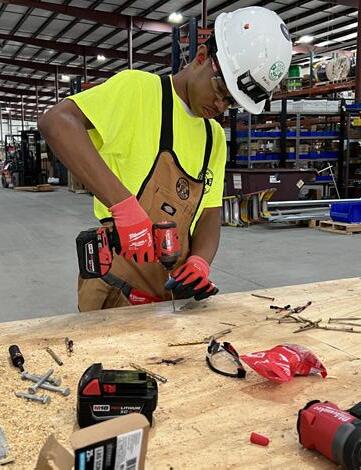

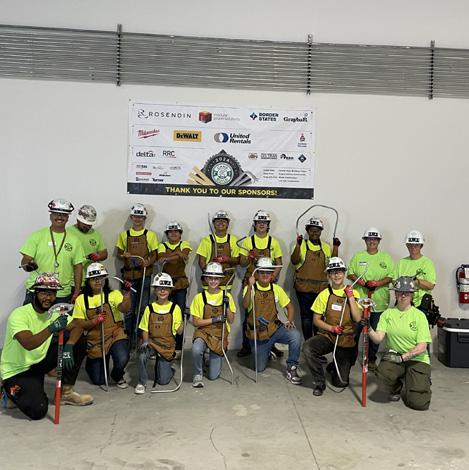
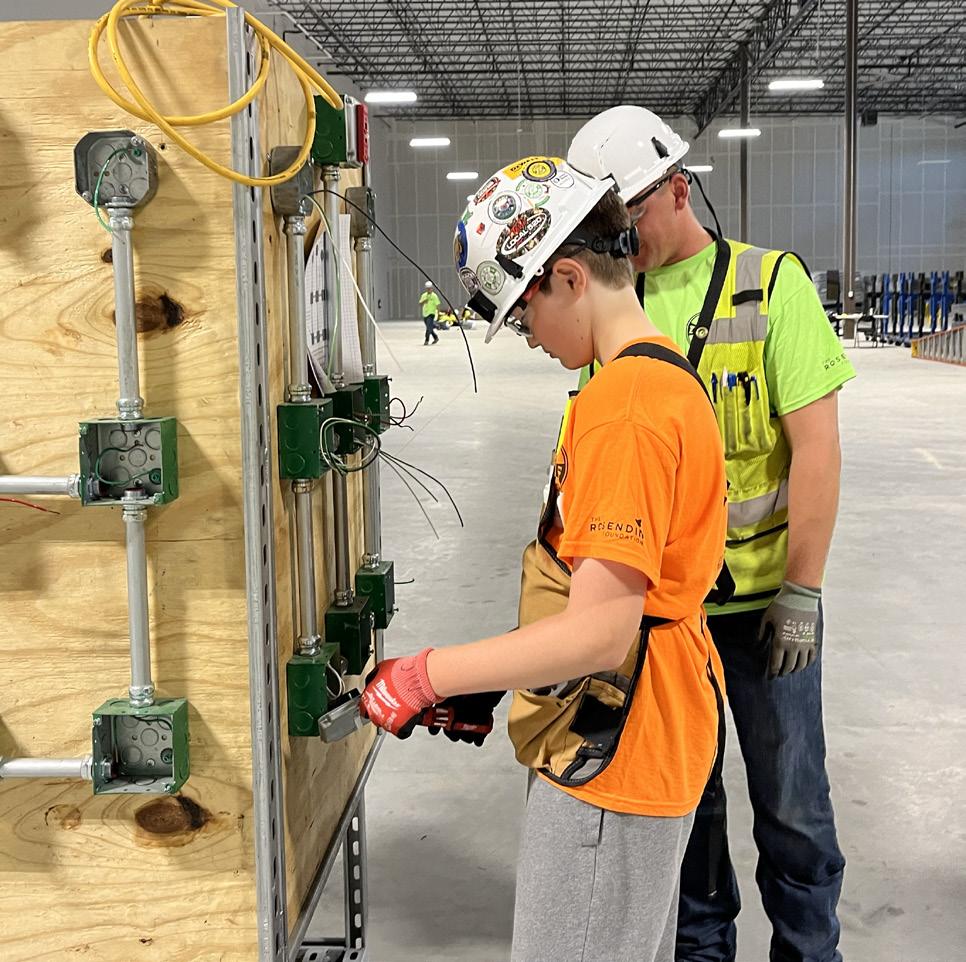
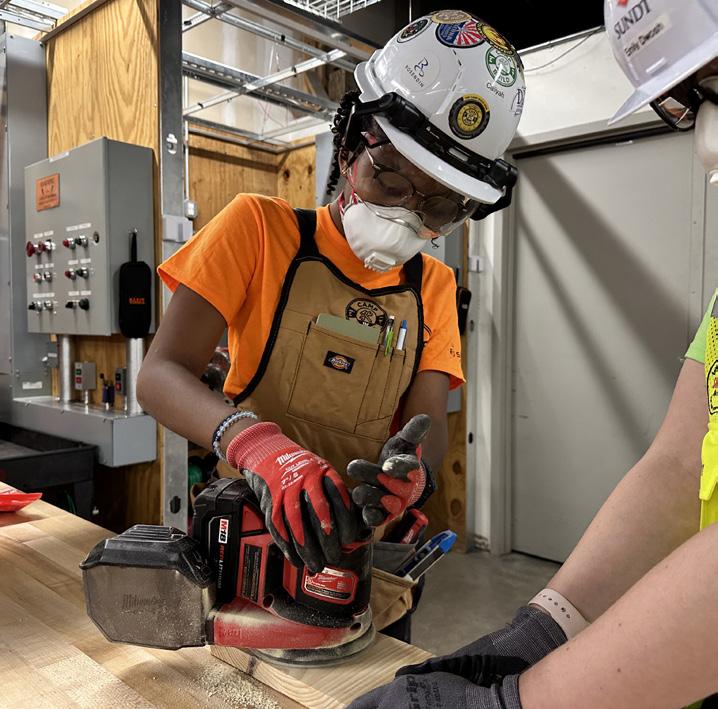
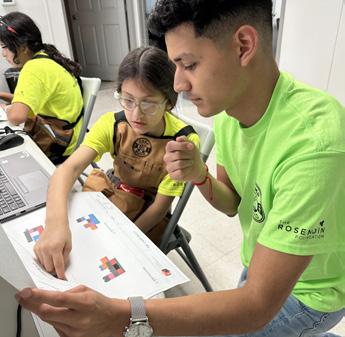

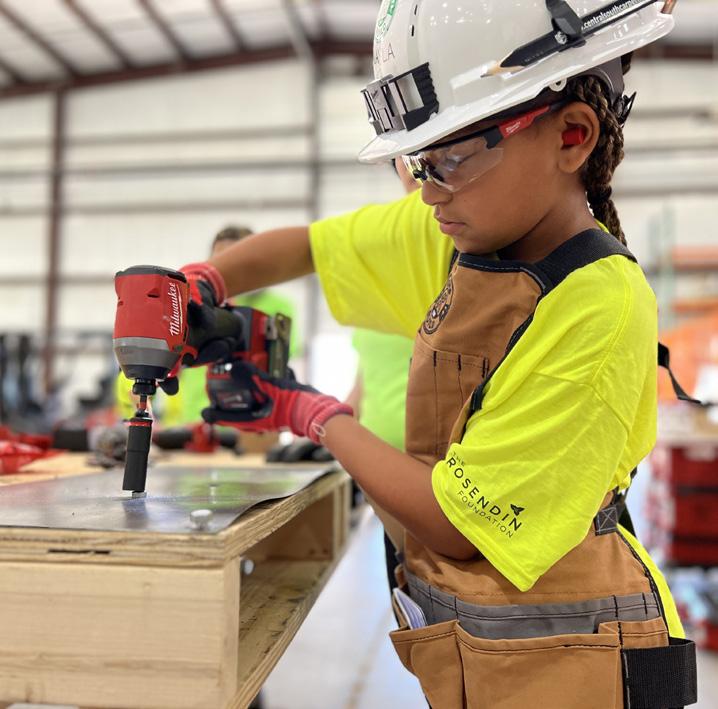

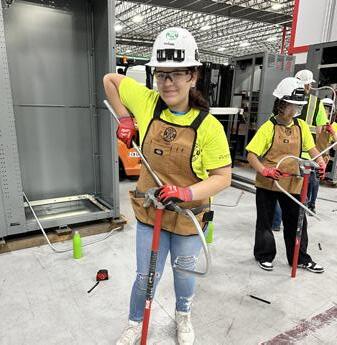
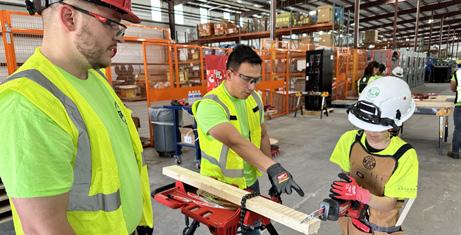

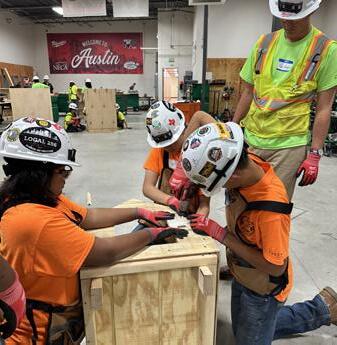
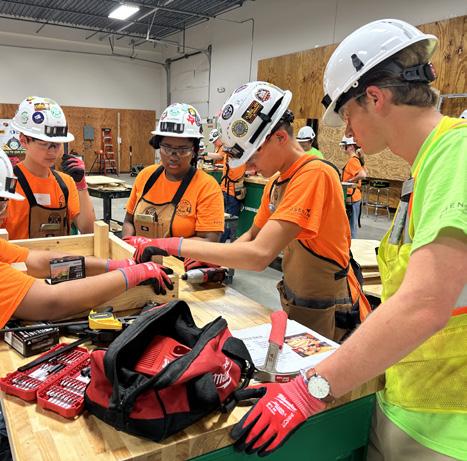
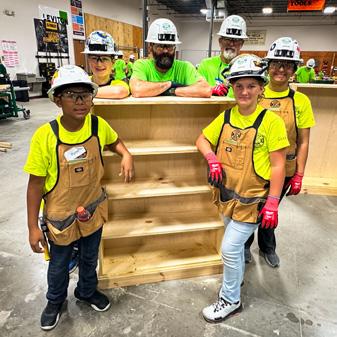
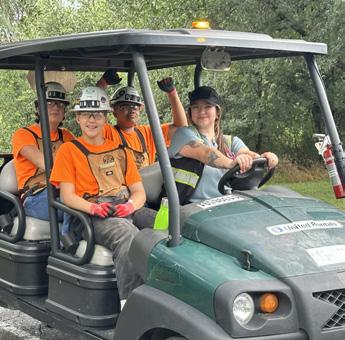
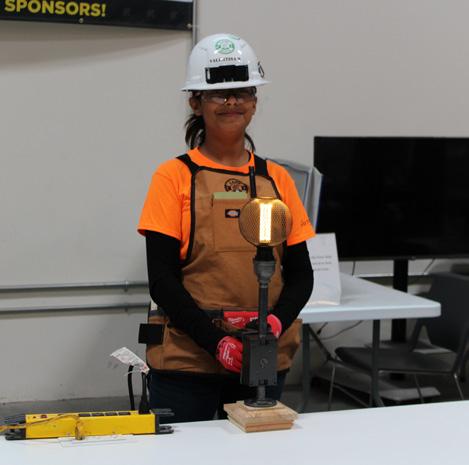
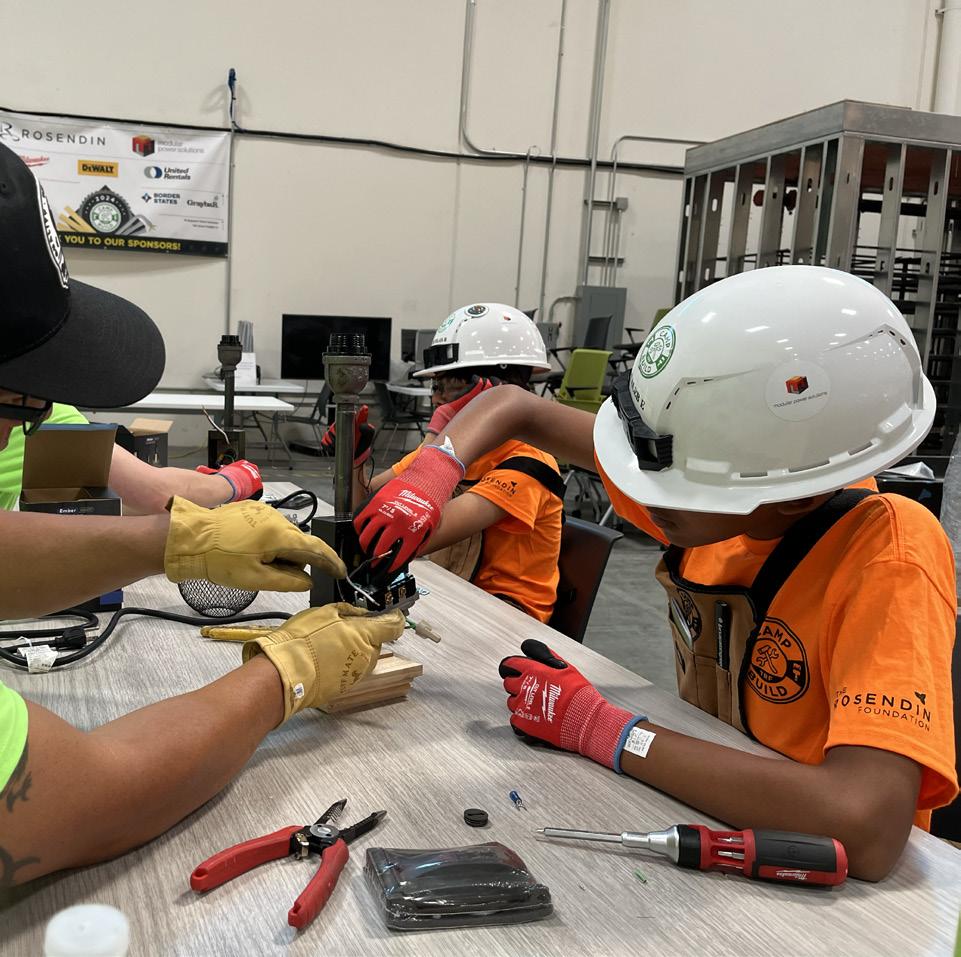

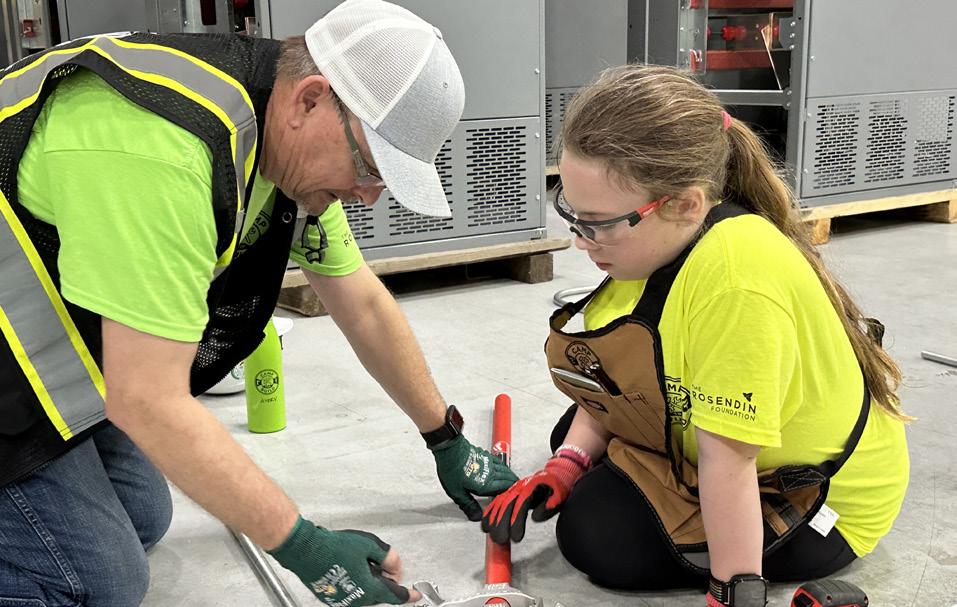
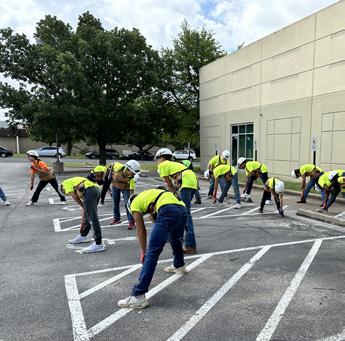


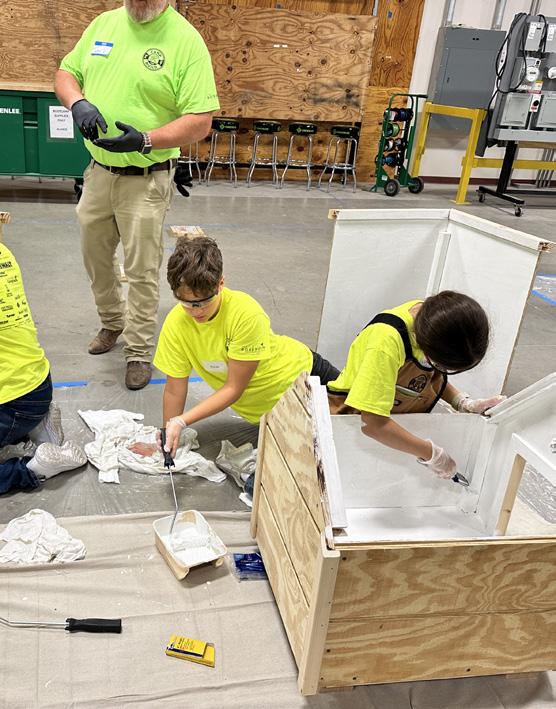
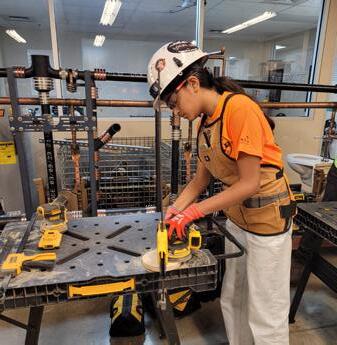
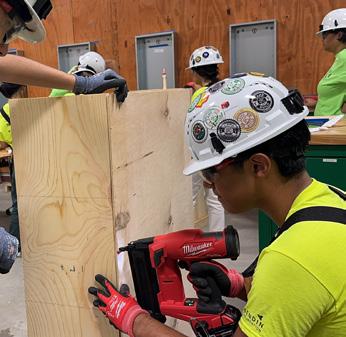
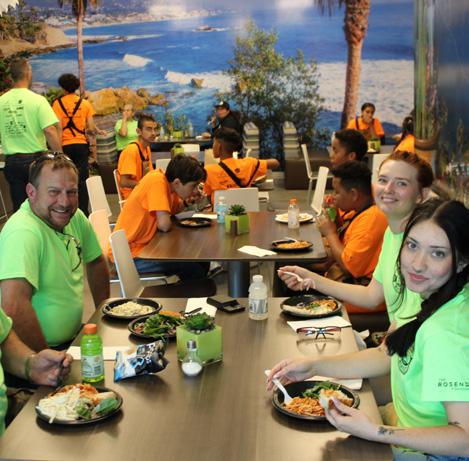
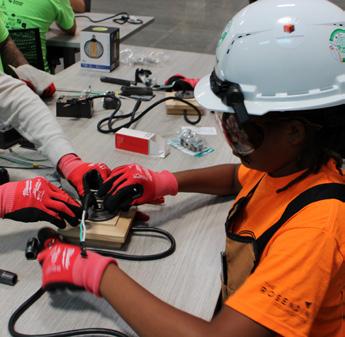
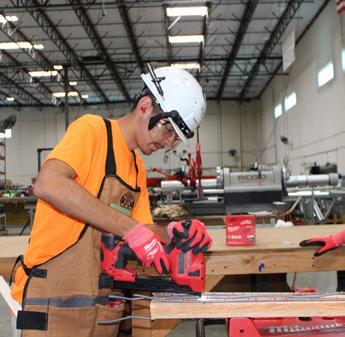
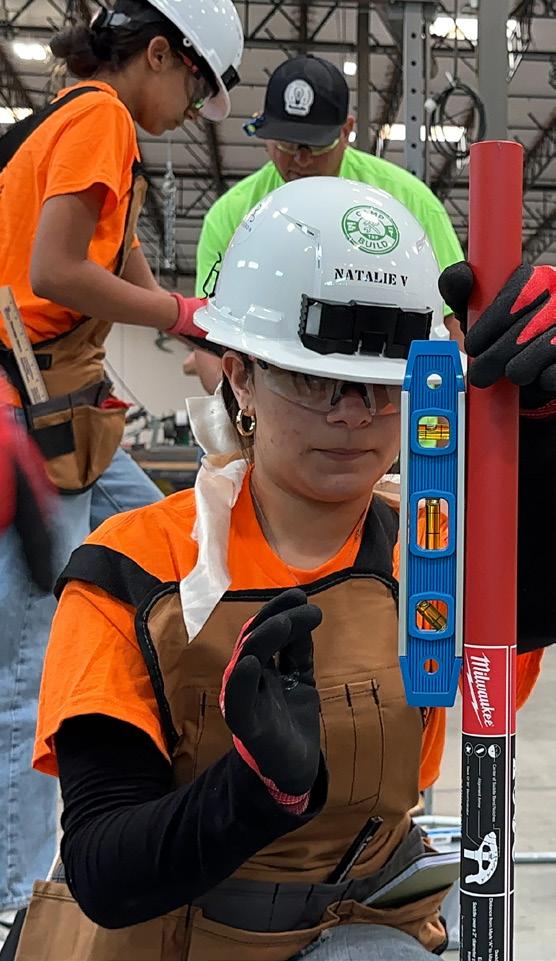
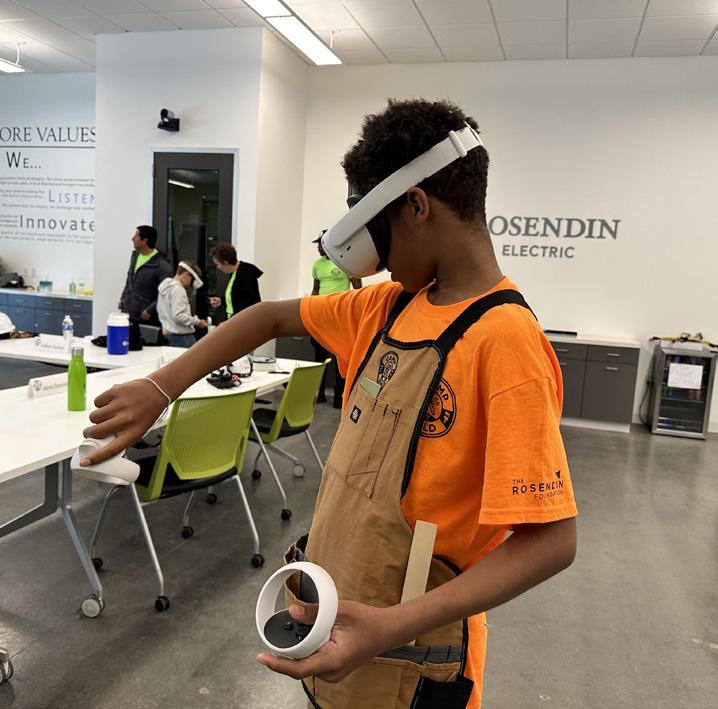
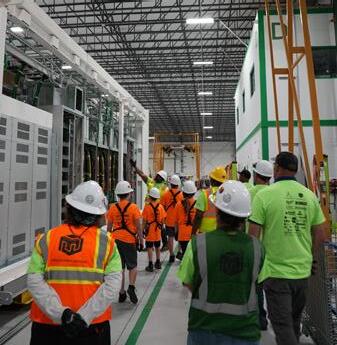
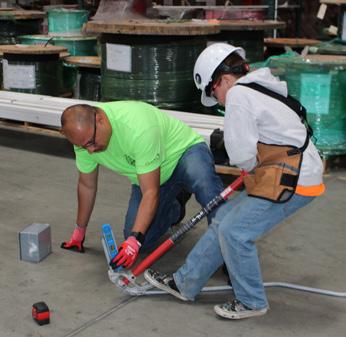
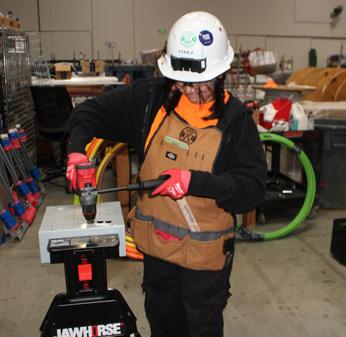

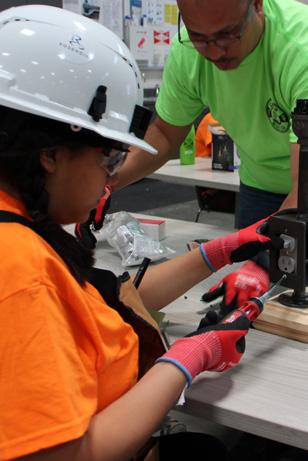
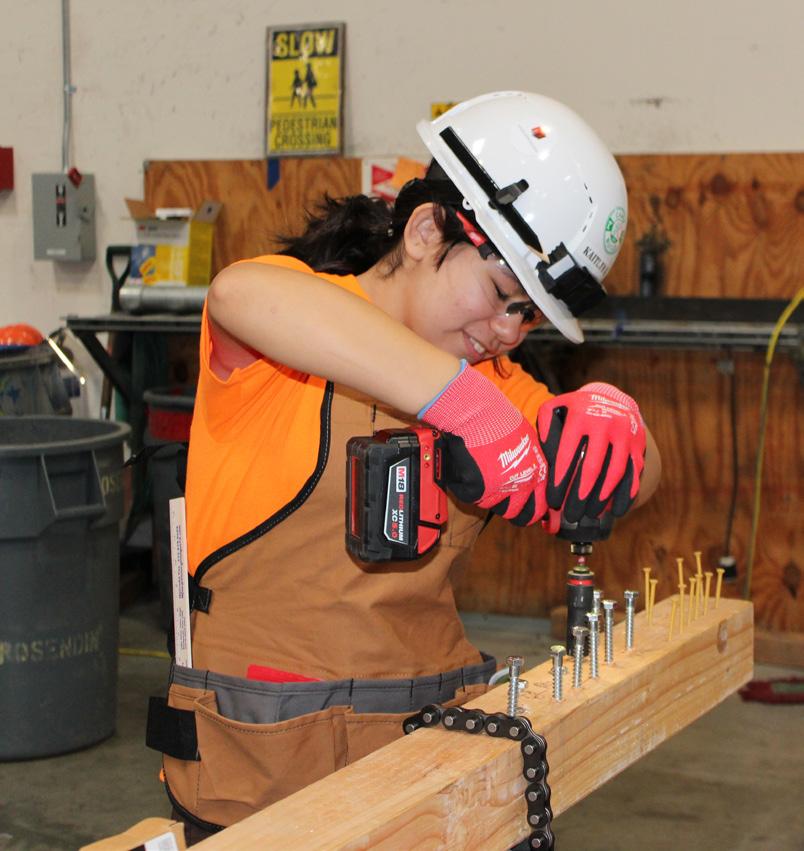


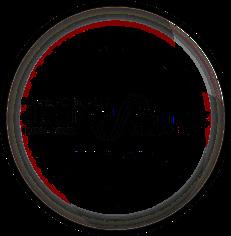




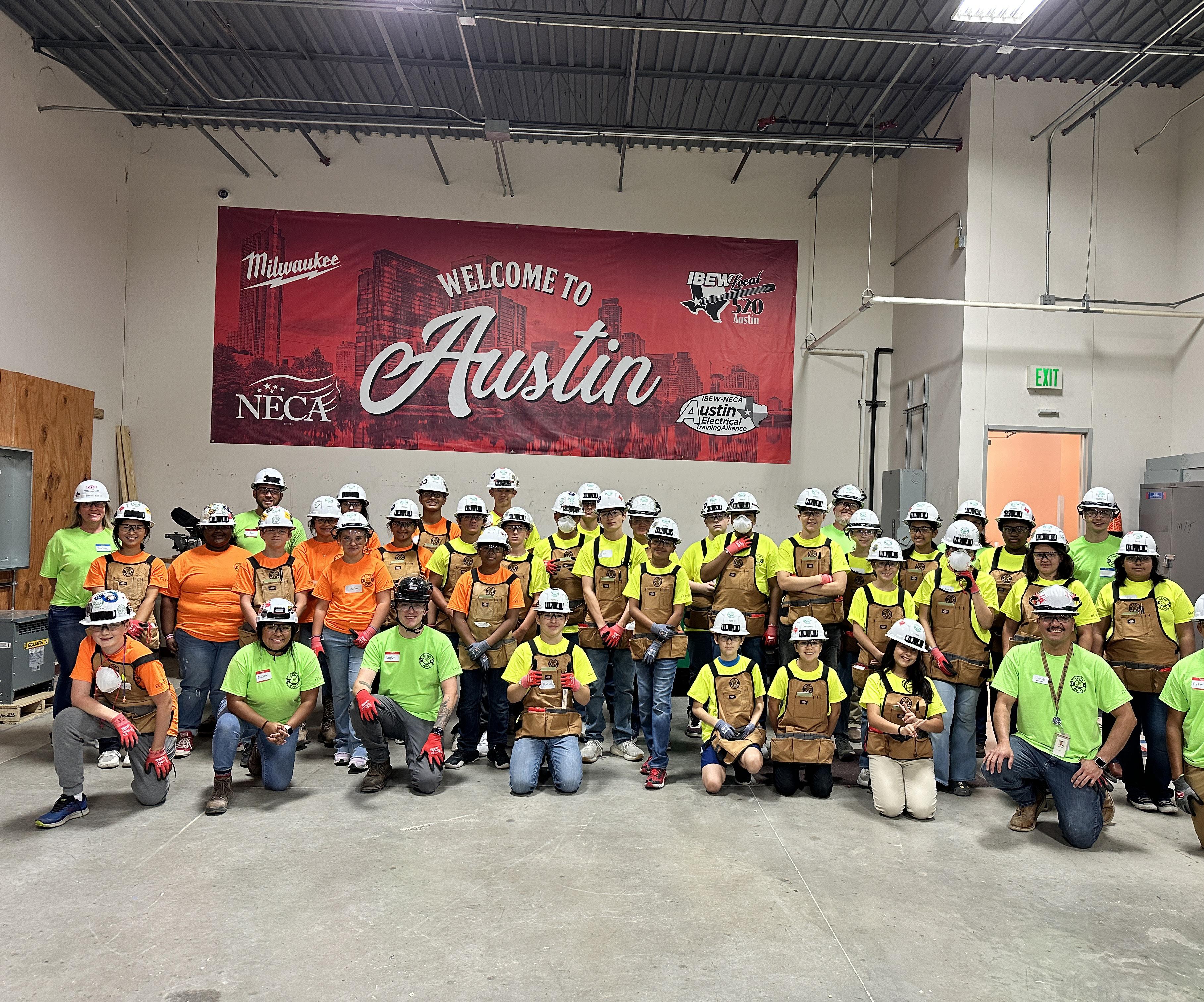





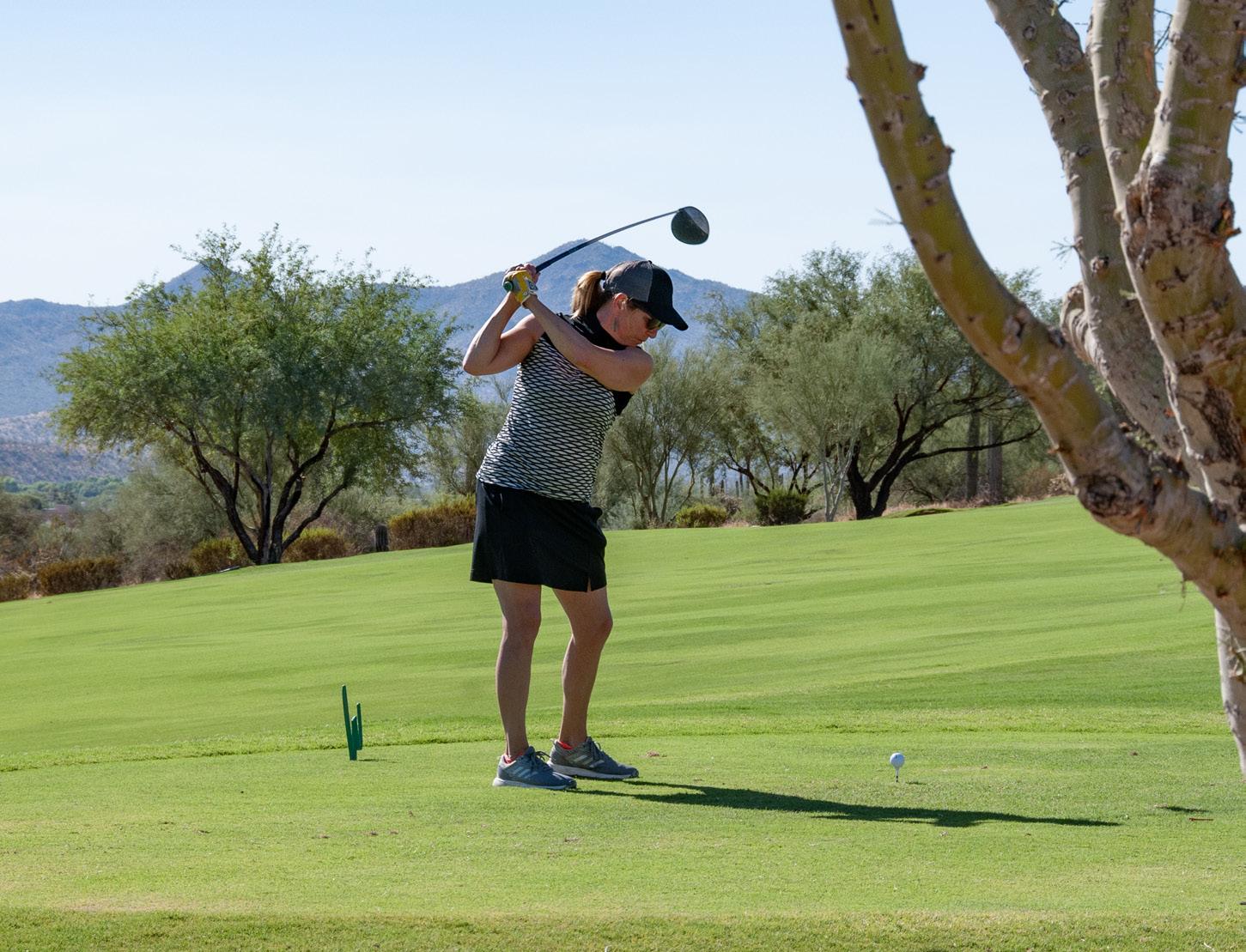
In Q2, Rosendin received a Top Electrical Contractor ranking in Arizona, and two employees received awards for their dedication and hard work within the industry.
#4 Top 10 Electrical Contractors AZ Big Media/Ranking Arizona
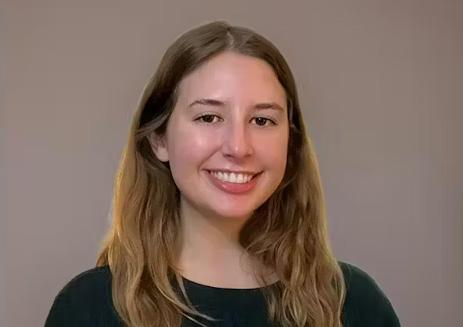
Project Manager, Dallas, TX
30 Under 30 All Stars, EC&M
Nominations for EC&M 30 under 30 All Stars hit a record high in 2024. Libby was selected as an All Star for her dedication and commitment to learning and career development.

Foreman, Phoenix, AZ
Safety Awards Program, Compass Cares
Leander is recognized for his outstanding leadership! He ensures that his team has the materials and equipment needed to be productive and perform their tasks safely.

